2024 looks set to be another massive year for EVs in Australia with over 40 new electric car models expected to launch.
2023 was another record year for electric car sales in Australia, highlighted by; the arrival of new in-demand models from Tesla and BYD, newly introduced government incentives, and the continued rollout of more public charging infrastructure.
But what are the upcoming electric cars coming to Australia in 2024?
From the updated Tesla Model 3, to the first EV models from automotive giants; Toyota and Volkswagen, 2024 looks to be the most interesting year yet for EVs in Australia. EV manufacturers appear to finally be paying attention to the Australian market.
Read on to see the list of over 40 new electric car models launching Down Under this year. View currently available electric cars models ⬇️⚡🚗
Electric Car DatabaseNew Electric Car List 2024
Below is a list of the 43 new EV models launching in Australia in 2024.
Note: Some prices are estimates and are for guidance purposes only. Estimated prices will be updated once they have been confirmed.
Abarth
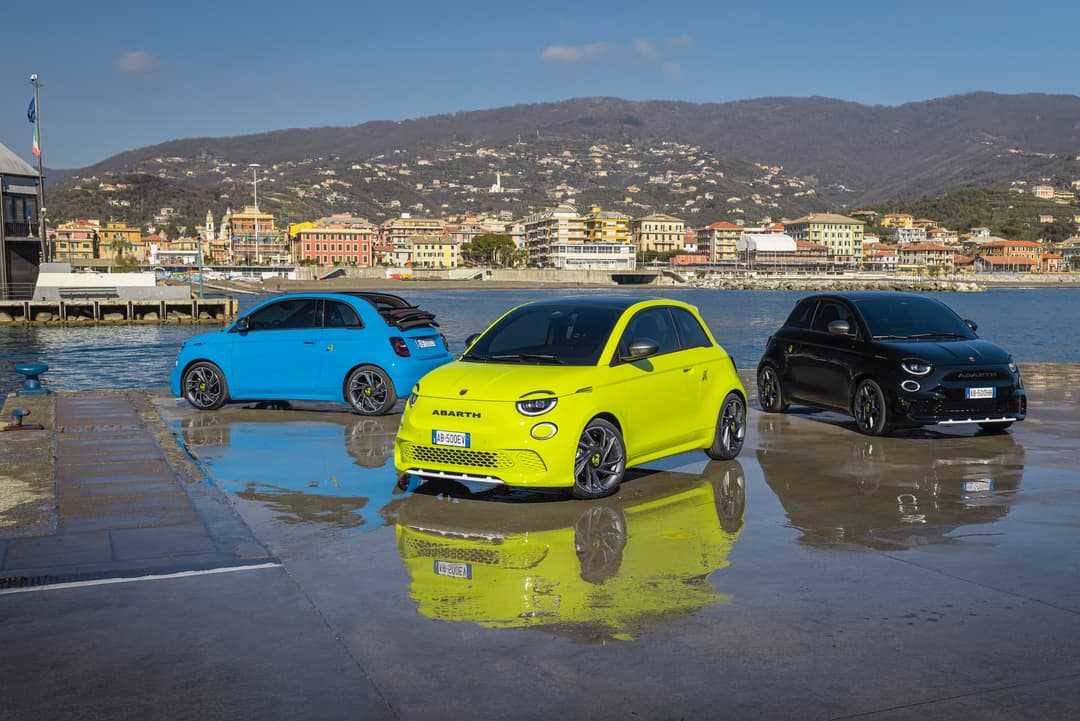
Abarth 500e Turismo
- City electric hot hatch
- Competes with: Mini Electric (Cooper SE), Cupra Born
- Expected on the 1st half of 2024
Fiat's high performance brand will finally release an all-new model this 2024, but this time it's all-electric.
The Abarth 500e is a hotted-up version of the Fiat 500e city hatch, with a front-wheel drive electric motor producing 113kW of power and 235Nm of torque and a 'Sound Generator' feature that pumps a petrol engine growl via the speakers.
The three-door electric hot hatch uses a city-friendly 37.3kWh usable battery, with 264km of claimed range quoted overseas based on the WLTP testing cycle.
It's also capable of up to 85kW DC and 11kW AC charging speeds.
Audi
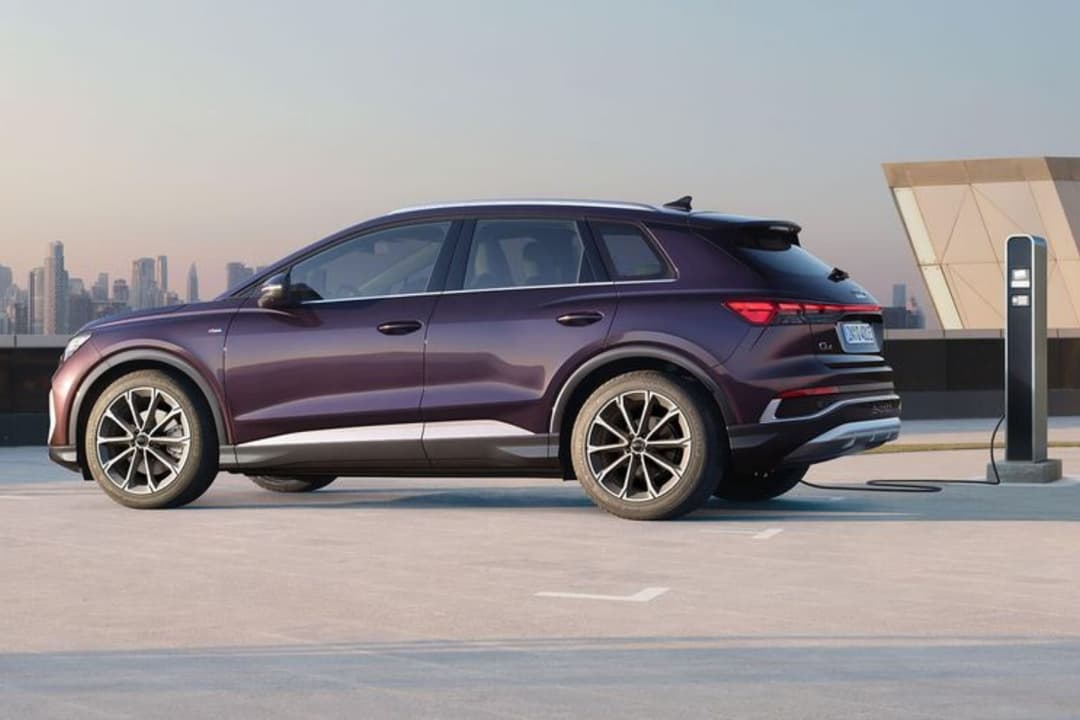
Audi Q4 e-Tron
- Mid-size electric SUV
- Competes with: Tesla Model Y, Volvo XC40
- Expected in mid-2024
The Audi Q4 e-Tron is expected to enter the Australian market in the middle of 2024. This mid-size SUV is expected to have a starting price of around $88,300 before on-road costs and will compete with the likes of the Tesla Model Y and the Volvo XC40. It will be available in two models - the base model and the Sportback model.
The more efficient base model is equipped with a lithium-ion battery pack which has 77kWh net battery capacity. It has a claimed driving range of up to 526km and with its rear-wheel drive configuration is able to accelerate from 0-100 km/h in 6.7 seconds.
Audi Q8 50 e-Tron
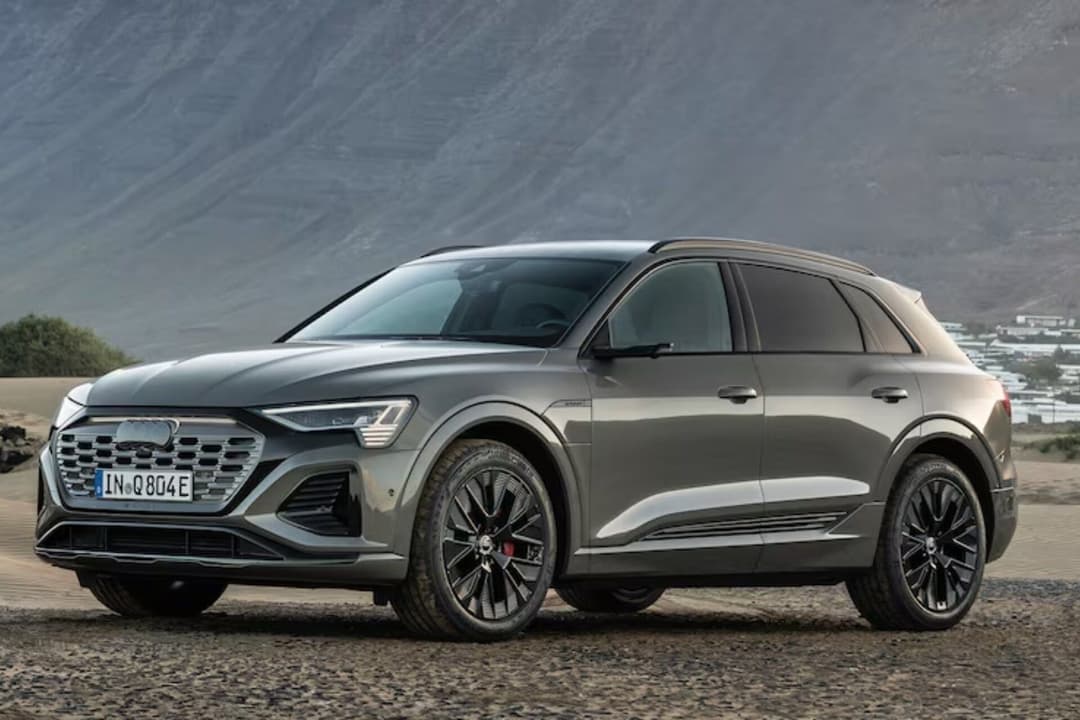
- Large electric SUV
- Competes with: Mercedes-Benz EQC, BMW iX, Genesis Electrified GV70
- Expected on the 1st half of 2024
The Audi e-Tron SUV and e-Tron Sportback will be renamed to the Q8 e-Tron and Q8 e-Tron Sportback when it receives a facelift in 2024.
The update brings aerodynamic efficiency improvements and larger batteries – 89kWh usable nickel-manganese cobalt (NMC) and 106kWh usable nickel-cobalt-aluminium (NCA) – offering between 491km to 600km of claimed WLTP range depending on the model.
Charging speeds have also been improved at up to 150kW DC on the 'small' NMC battery and 170kW DC on the larger NCA pack. The AC onboard charger remains the same at 11kW AC.
Audi SQ8 e-Tron
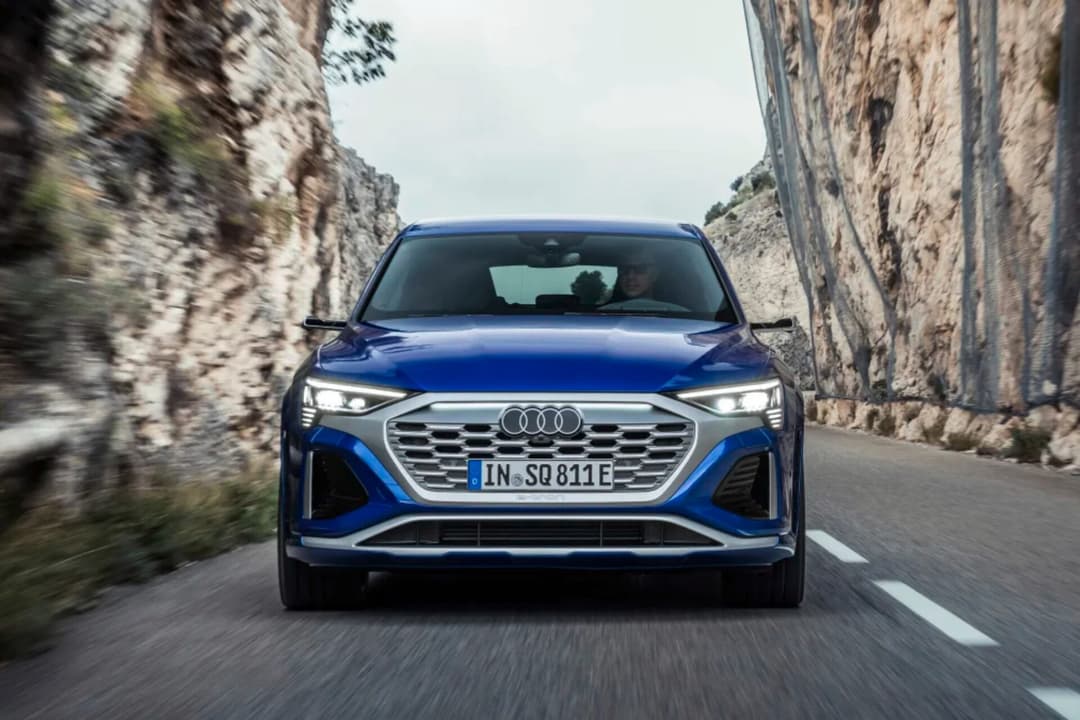
- Sporty electric SUV
- Competes with: BMW iX, Mercedes-Benz EQE
- Expected on the 1st half of 2024
The 370kW powertrain of this sporty electric SUV will allow the Audi SQ8 to accelerate from 0-100 km/h within 4.5 seconds. Based on the Q8 e-Tron, the SQ8 is meant to be the sportier version. It has a claimed driving range of around 400km, and is equipped with 106 kWh battery pack that can be charged up with a 170kW DC fast charger.
The SQ8 comes in two models - a squareback and the Sportback models. As standard features, it offers a panoramic sunroof, heated leather seats and two touchscreens at the center.
BMW
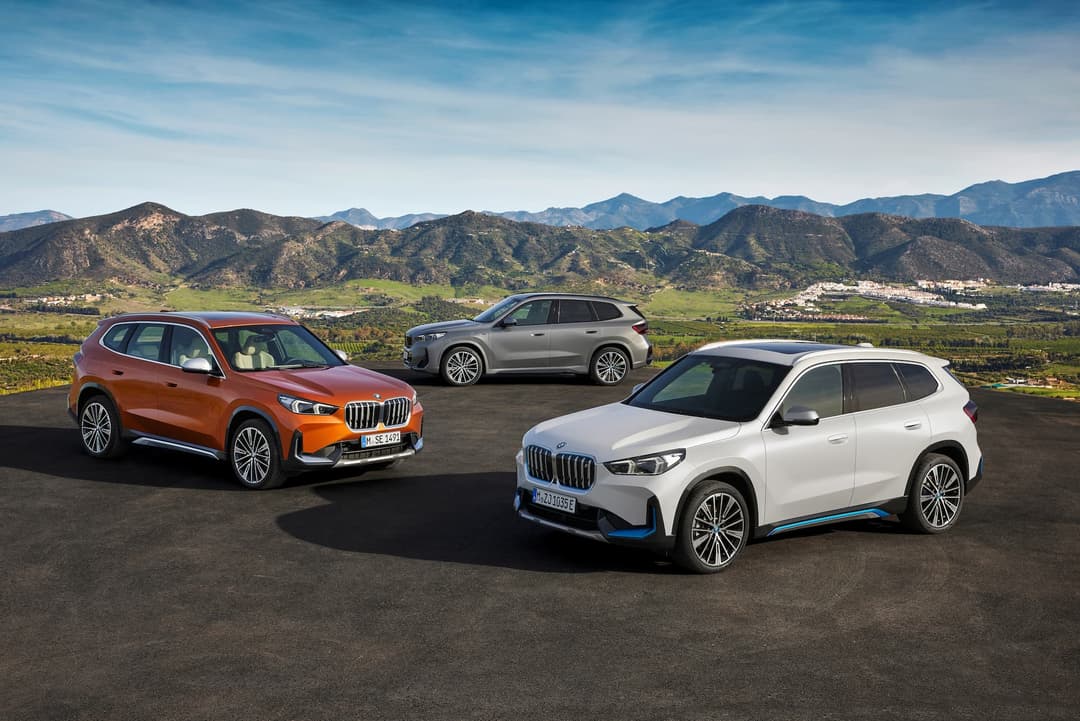
BMW iX1 eDrive 20
- Small electric SUV
- Competes with: Tesla Model Y, Volvo XC40, Mercedes-Benz EQA
- Expected in Q1 2024
The BMW iX1 small electric SUV is the entry point into a BMW EV.
It shares the same UKL2 combustion engine-based platform as the third-generation BMW X1, and is priced from $84,900 before on-roads with a single xDrive30 drivetrain and two trims – xLine and M Sport.
The iX1 SUV uses a 65kWh usable battery, whcih provides up to 440km of claimed WLTP range, up to 130kW DC fast charging and 11kW AC charging capabilities.
BYD
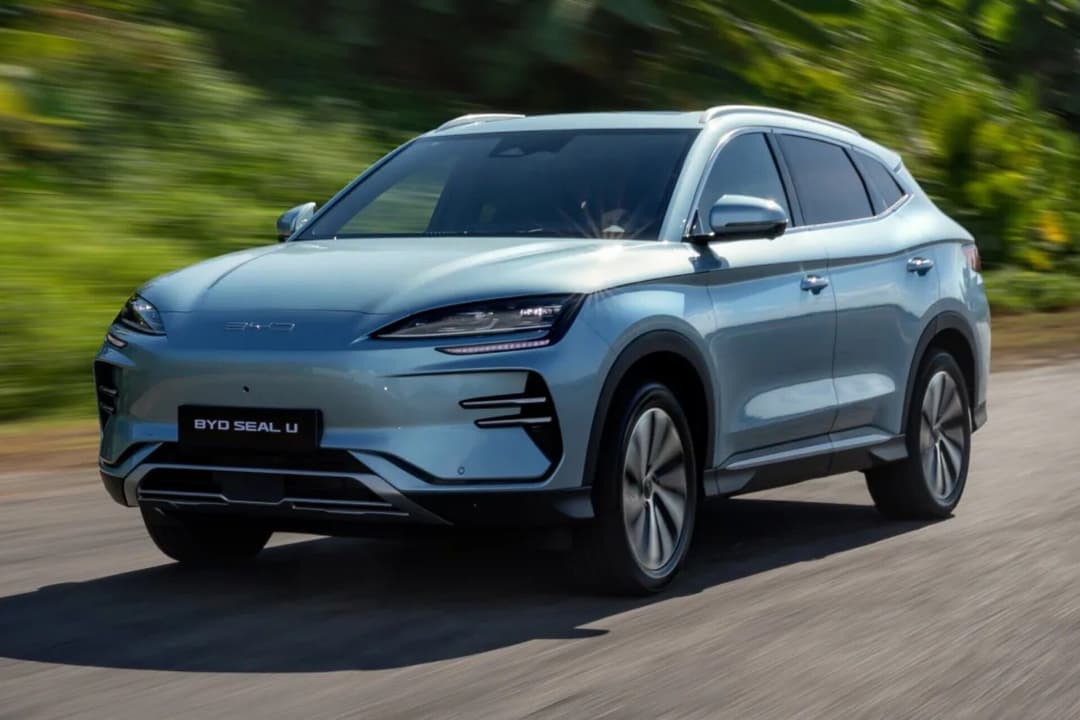
BYD Seal U
- Mid-size SUV
- Competes with: Tesla Model Y, Volvo XC40
- Expected in March/April 2024
The BYD Seal U electric SUV, known as the BYD Song Plus in China, is slated to launch in Australia in 2024, positioning itself as a direct competitor to the renowned Tesla Model Y. It will be the second electric SUV model from BYD, having introduced the Atto 3 compact electric SUV in 2022
The Seal U will be built on BYD's dedicated EV platform, e-Platform 3.0, similar to the Seal sedan. Two European versions are anticipated: the Comfort model with a 72kWh battery and the Design model with an 87kWh battery. The Seal U's dimensions closely match those of the Tesla Model Y, making it a formidable contender in the electric SUV market.
Pricing has yet to be confirmed, but it is expected to undercut the Tesla Model Y, similar to how the BYD Seal has undercut the Tesla Model 3.
BYD Ute EV
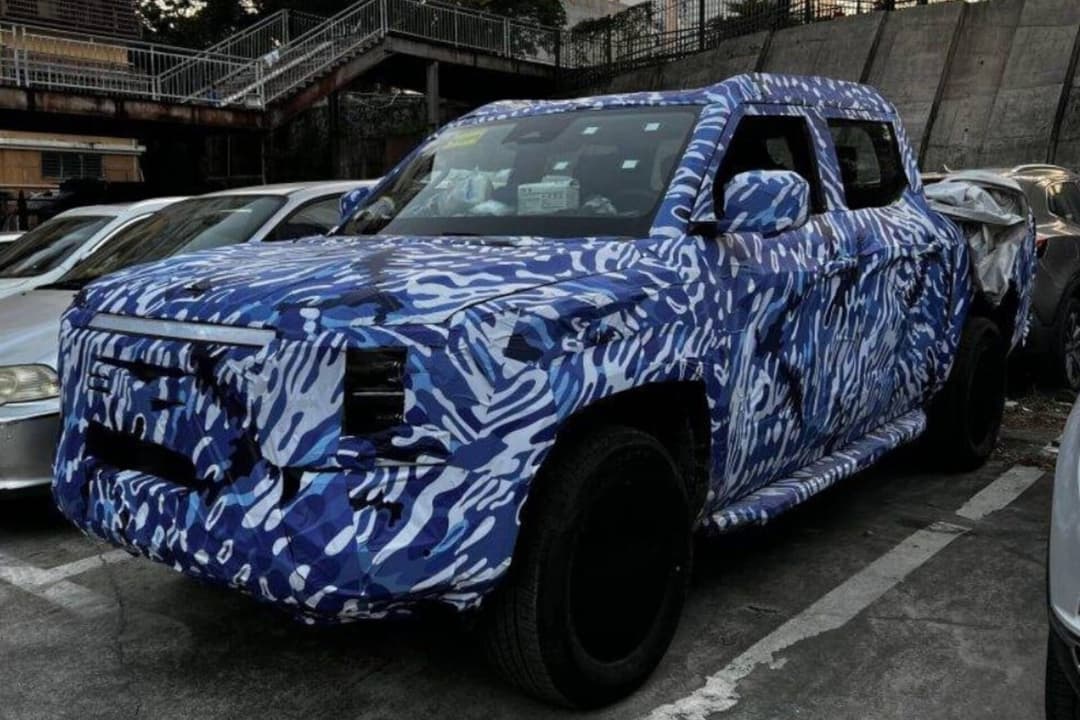
- Dual cab ute
- Competes with: Ford Ranger, Toyota Hilux
- Expected in late 2024
BYD unveiled plans to bring an electric dual-cab to the Australian market at the Japan Mobility Show in Tokyo. It would compete with current best selling utes like the Toyota HiLux and Ford Ranger. Deliveries are expected in late 2024.
The first release will be a plug-in-hybrid EV (PHEV) feature a petrol-electric powertrain known as "Dual Motor Intelligence" (DMI), allowing for 100km in pure electric mode and approximately 1000km when combined with the petrol tank. A fully electric model is expected about a year later. The same plug-in hybrid technology is also present in BYD's U8 luxury SUV, which boasts a powerful combination of a 2.0-litre turbo-petrol engine and four electric motors. Specifics about the ute's powertrain are still pending, but it will include a 1.5-litre turbo-petrol engine.
Pricing has not be confirmed but given BYD's recent ability to price its EVs similarly to petrol equivalents, its possible it could do the same with the BYD Ute.
Chery
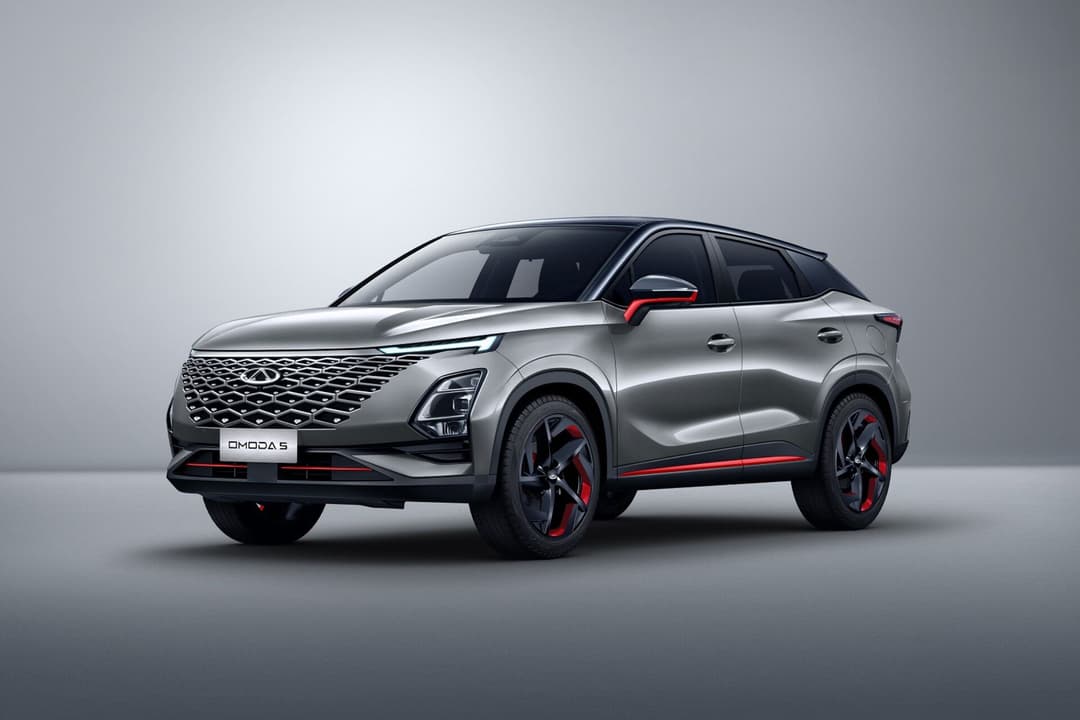
Chery Omoda 5 EV
- Compact crossover SUV
- Competes with: BYD Atto 3, Hyundai Kona, Kia Niro EV
- Expected on the 2nd half of 2024
In 2024 this all-electric vehicle will be joining its petrol-powered version in the Australian market, which was introduced this year. Details on its pricing are yet to be released but it will be competing with the likes of the BYD Atto 3, Hyundai Kona and Kia Niro which fall in the $50,000-$70,000 price range.
Equipped with a 61kWh battery, it is expected to have a driving range of around 450 kilometers. It is expected to have a single motor, front-drive configuration with a power output of around 150kW and 400Nm of torque. Similar to its petrol-powered version, the Omoda 5 EV is expected to come with a plethora of features and driver-assist technology.
Ford
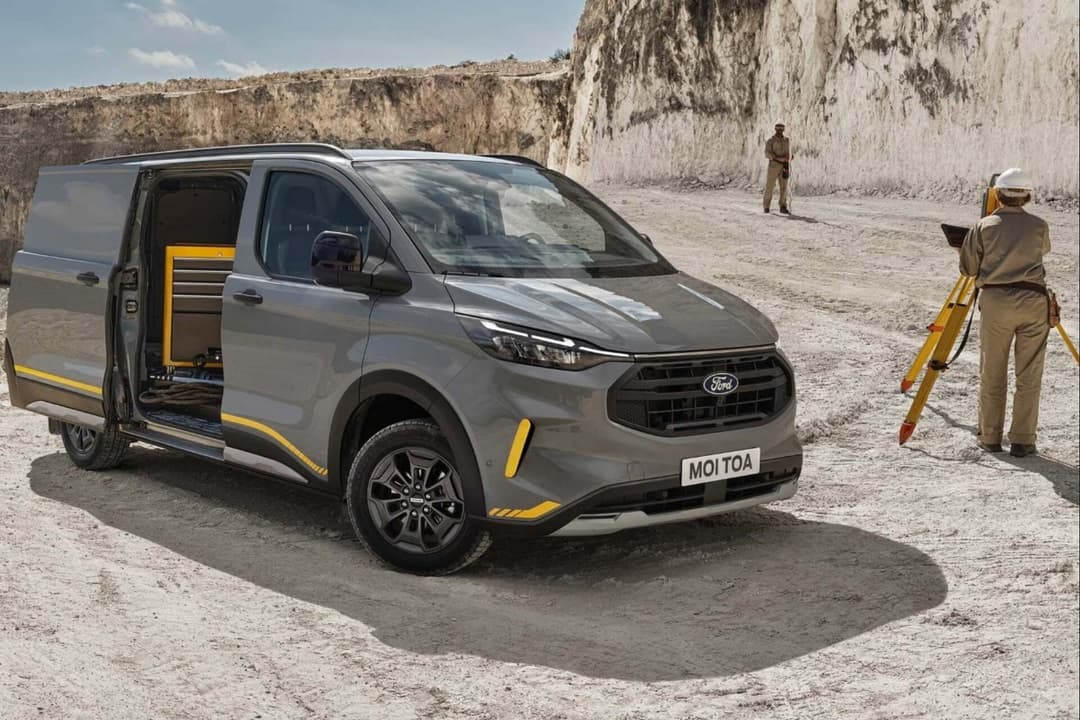
Ford E-Transit Custom
- Large electric van
- Competes with: LDV eDeliver 9
- Expected ont 1st half of 2024
Ford's first electric vehicle in Australia will be the E-Transit large electric commercial van, ahead of a wider push including the Mustang Mach-E SUV, E-Transit Custom medium-sized delivery van, and Puma EV crossover.
While local pricing hasn't been announced yet, it will be offered in a 420-litre long wheelbase rear-drive configuration only with the same cargo area as its diesel-powered twin and a 1616kg targeted payload capacity.
The E-Transit van houses a 68kWh usable battery pack to yield an estimated driving range of up to 307km, with 115kW DC and 11.3kW AC charging capabilities.
Ford Puma EV
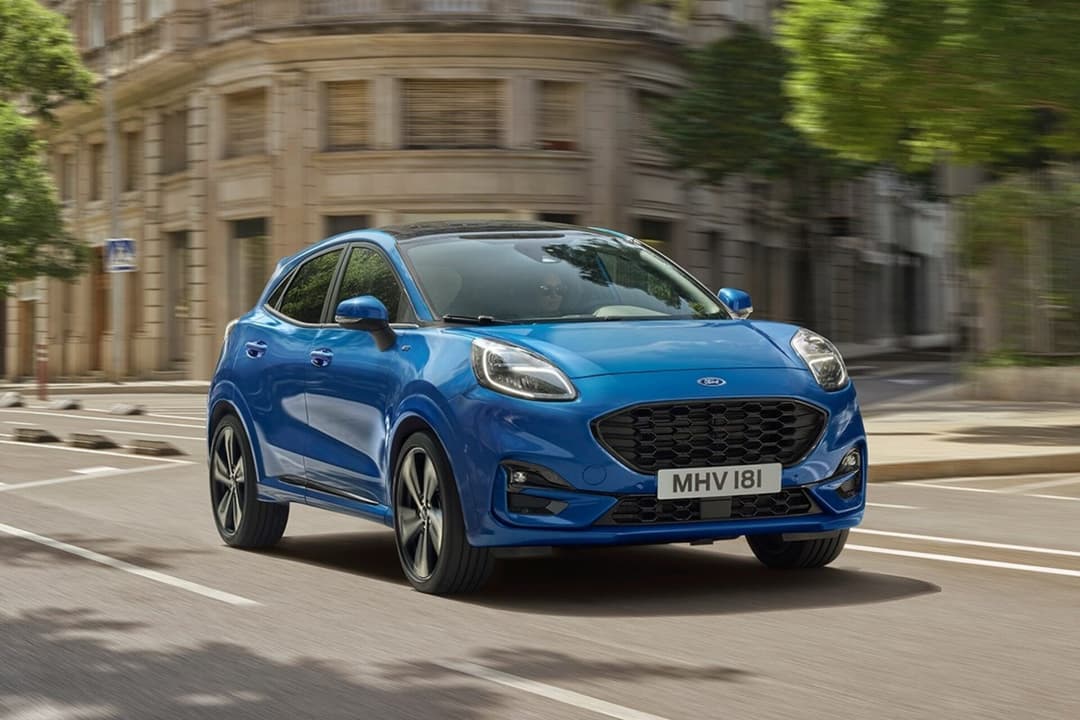
- Small electric SUV
- Competes with: MG ZS, Hyundai Kona
- Expected on the 2nd half of 2024
The Puma EV is Ford's way of entering the small all-electric SUV market and it is set to compete with the MG ZS and Hyundai Kona. Similar to its closest competitors, the Puma EV is expected to have a starting price of below A$60,000. In terms of design the Puma EV will be visually very similar to the petrol-powered version.
It is estimated to have a claimed driving range of around 400km, which will be more than its closest competitors, (only 305-320 km for the base models) the MG ZS and Hyundai Kona. Ford has opted to build the Puma EV on the same platform being used for the e-Transit, which is a platform that utilizes a 100kW drive unit.
Hyundai
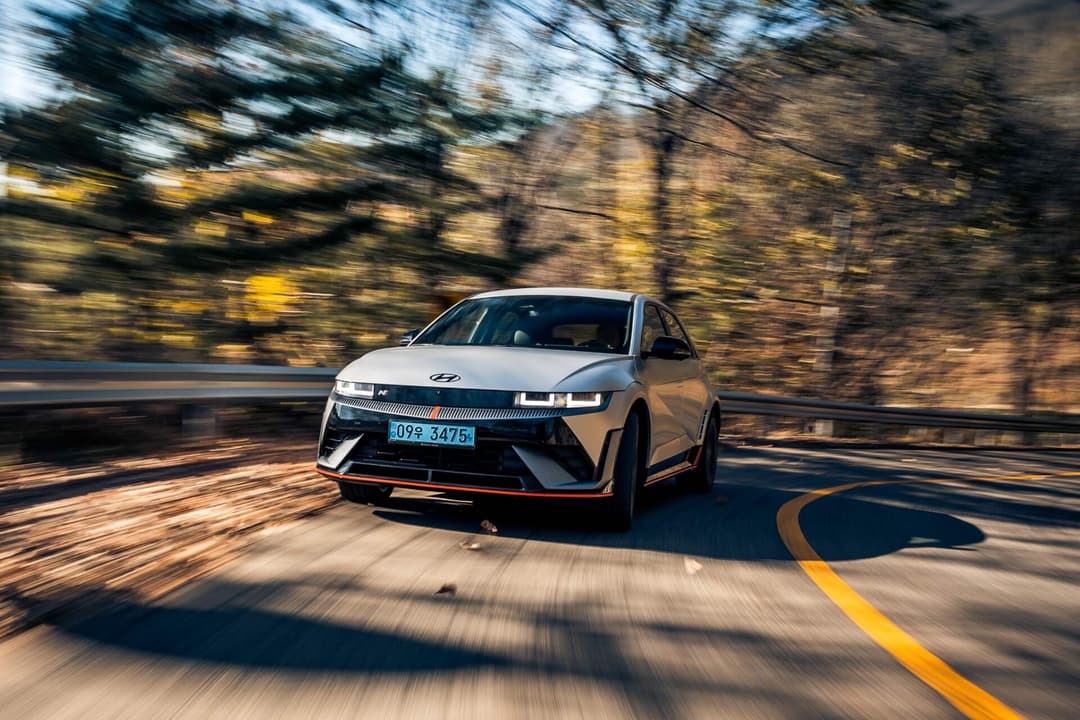
Hyundai Ioniq 5 N
- Performance medium electric SUV
- Competes with: Tesla Model Y Performance, Kia EV6 GT
- Expected on the 1st half of 2024
Hyundai Australia has unveiled the official pricing and specifications for its fastest and most expensive vehicle to date, the high-performance all-wheel-drive electric SUV, the Hyundai Ioniq 5 N. Prices for the range-topping Ioniq 5 N start from $111,000 before on-road costs.
The 84kWh battery (80.6 kWh useable) provides up to 450km of WLTP range. The battery can also support a maximum charge rate at up to 240kW DC, resulting in a quick charge from 10% to 80% in just 18 minutes using a 350kW DC rapid charger.
Underscoring its performance credentials, the boost feature allows drivers to experience the full power of the Ioniq 5 N by accelerating from 0 to 100 km/h in a mere 3.4 seconds.
2024 Hyundai Ioniq 5 N price and specsHyundai Ioniq 7
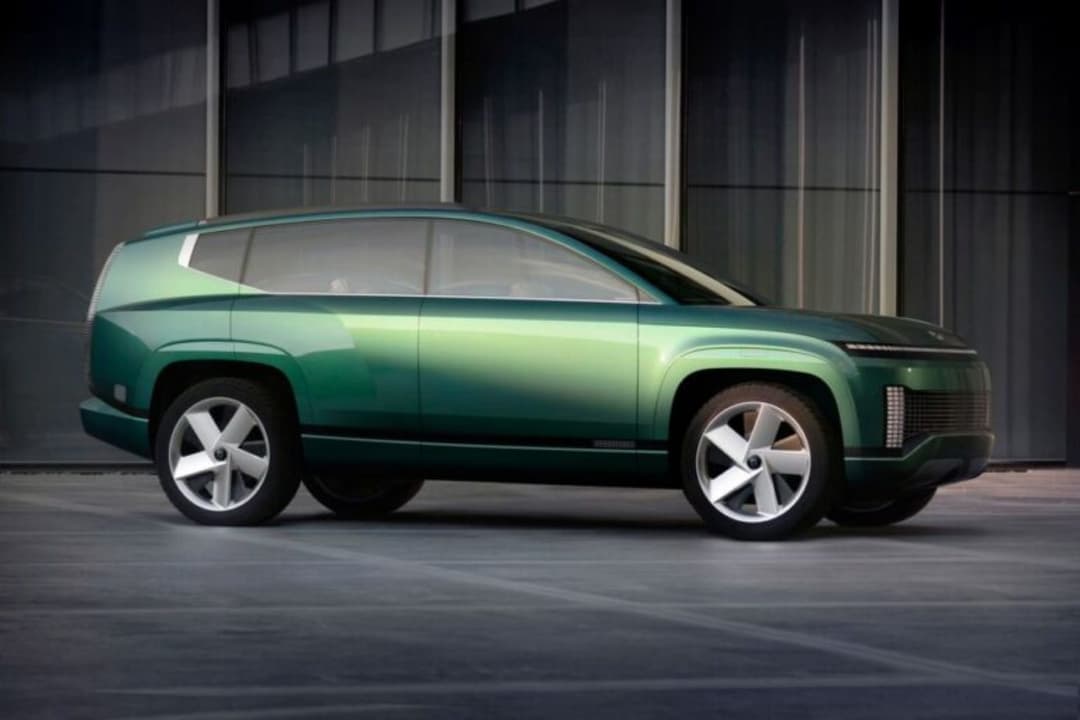
- Large electric SUV
- Competes with: Kia EV 9
- Expected on the 2nd half of 2024
As of now, details for the Hyundai Ioniq 7 have been scarce and is probably comparable to being a concept car. What is certain is that it will be large electric SUV with 3 rows of seats. It is estimated to have a starting price similar to its closest competitor, the Kia EV9. For reference, the 2024 Kia EV9 is expected to have a starting price of $97,000 before on-road costs.
As for the Ioniq 7's range, it is again expected to be quite similar to the Kia EV9 which has 400-500 kilometers of range, depending on the variant. Despite being tight-lipped about the Ioniq 7's details, Hyundai has stated that it will have fast charging capabilities - charging from from 10-80 percent within 20 minutes.
Hyundai Kona EV
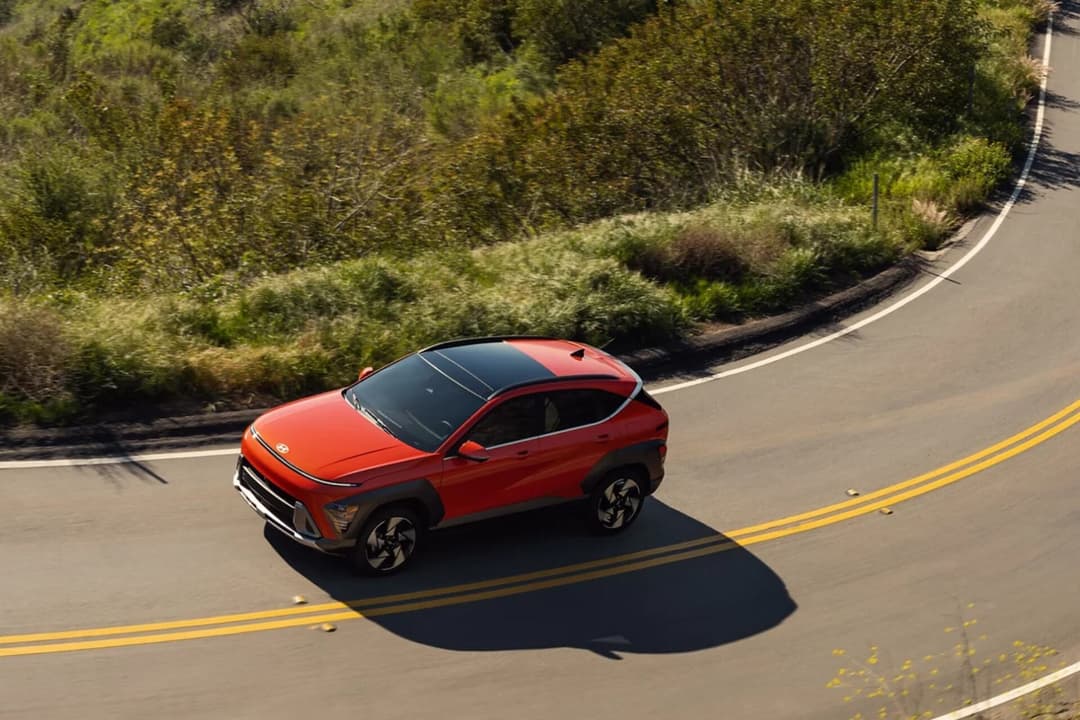
- Small electric SUV
- Competes with: Kia Niro EV, BYD Atto 3, MG ZS EV
- Expected in early 2024
The second-generation Hyundai Kona Electric will be launched at the end of this year alongside a petrol-hybrid variant.
Local pricing and features have yet-to-be-confirmed, but both the small 48.4kWh and larger 65.4kWh battery packs are on the cards – the latter likely to be priced closely to the second-generation Kia Niro EV, which starts from $65,300 plus on-road costs.
Overseas, the all-new Kona standard range is rated for 342km of claimed WLTP range, while the extended range offers 490km. According to EV Database, charging capabilities differ too – 75kW DC and 7.2kW AC on the small battery or 100kW DC and 11kW AC on the larger battery.
2022 Hyundai Kona Electric Extended Range reviewJeep
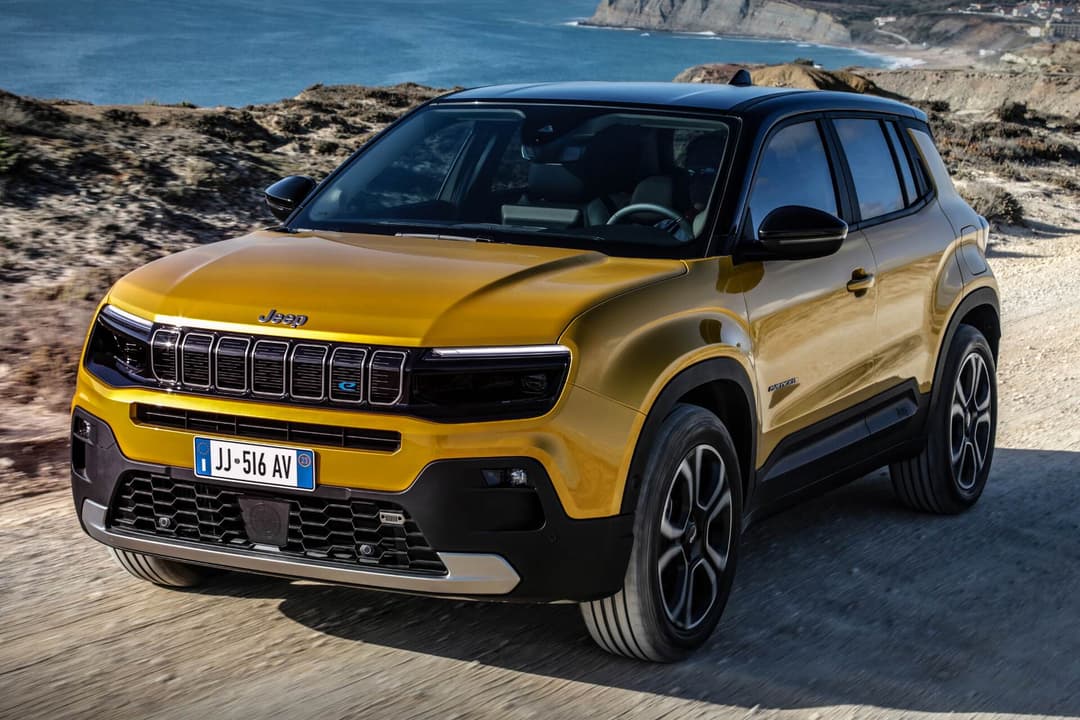
Jeep Avenger
- Small electric SUV
- Competes with: Peugeot e-2008, Volvo EX30, Hyundai Kona
- Expected ion the 2nd half of 2024
The all-electric model of the 2024 Jeep Avenger will be priced starting from around $71,000. It is a bit more expensive compared to its close competitor the Volvo EX30, which is priced around $59,990 for the 2024 model.
No information has been released yet about its driving range but it is expected to feature a FWD automatic drivetrain. It is estimated to have a max output power of 115kW and max torque of 260 Nm, which will enable to Avenger to accelerate from 0-100 km/h within 9.0 seconds.
Kia
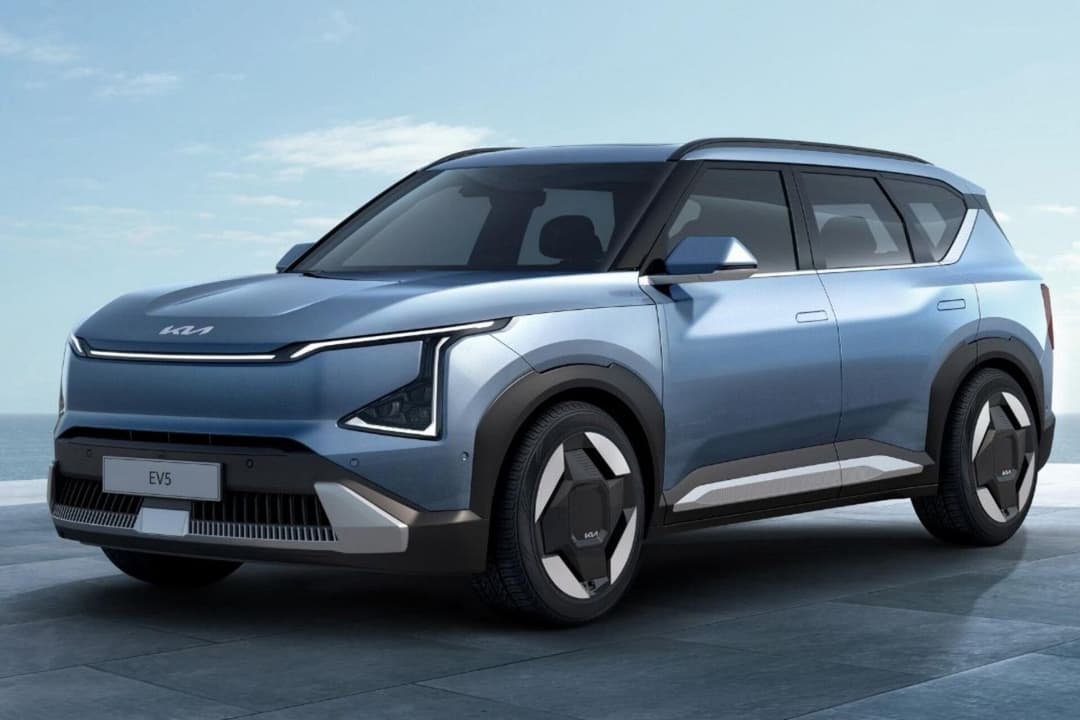
Kia EV5
- Medium-sized SUV
- Competes with: Tesla Model Y, Hyundai Ioniq 5, Volkswagen ID.4
- Expected in 2024
The EV5 is built on the same E-GMP all-electric architecture as the EV6 and EV9, as well as Hyundai's Ioniq 5 and Ioniq 6.
It has been aggressively priced in China, starting at ~A$29,700. This brings it close to the BYD Yuan Plus (Atto 3) pricing of AUD 26,300 and significantly less than Tesla's Model Y, which starts at a higher AUD 58,600.
The Standard variant features a 160kW electric front-motor, coupled with a 64kWh battery. Kia states that under the more lenient CLTC testing conditions, it can achieve a range of as much as 530km.
The EV5 also boasts fast-charging capabilities that Kia and Hyundai EVs are known for, allowing a charge from 30 to 80 percent in as little 27 minutes.
LDV
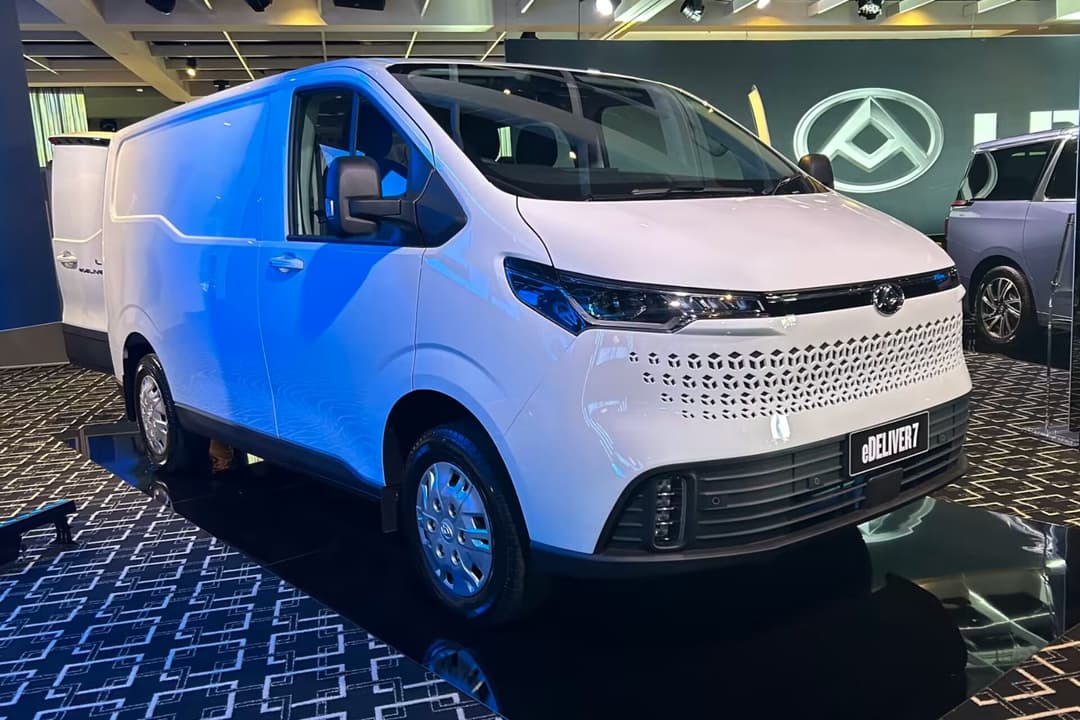
LDV eDeliver 7
- Mid-size electric van
- Competes with: Mercedes-Benz e-Vito, Peugeot e-Expert
- Expected in Q1 2024
After releasing the the eDeliver 9 this 2023, LDV is not slowing down with its plans in the electric commercial van space by introducing the LDV eDeliver 7 to the Australian market in 2024. Estimated to priced around $85,000-$95,000 before on-road costs, this mid-size electric van is meant to complement the eDeliver 9's presence within the large electric van segment.
Overseas, the base model is equipped with a 77kWh battery which provides a driving range of 300km while the long-range variant is equipped with a 88 kWh battery for a 380km range. Both variants will have a 150kW motor which will allow the eDeliver 7 to accelerate from 0-100 km/h in 12.0 seconds.
Mercedes-Benz
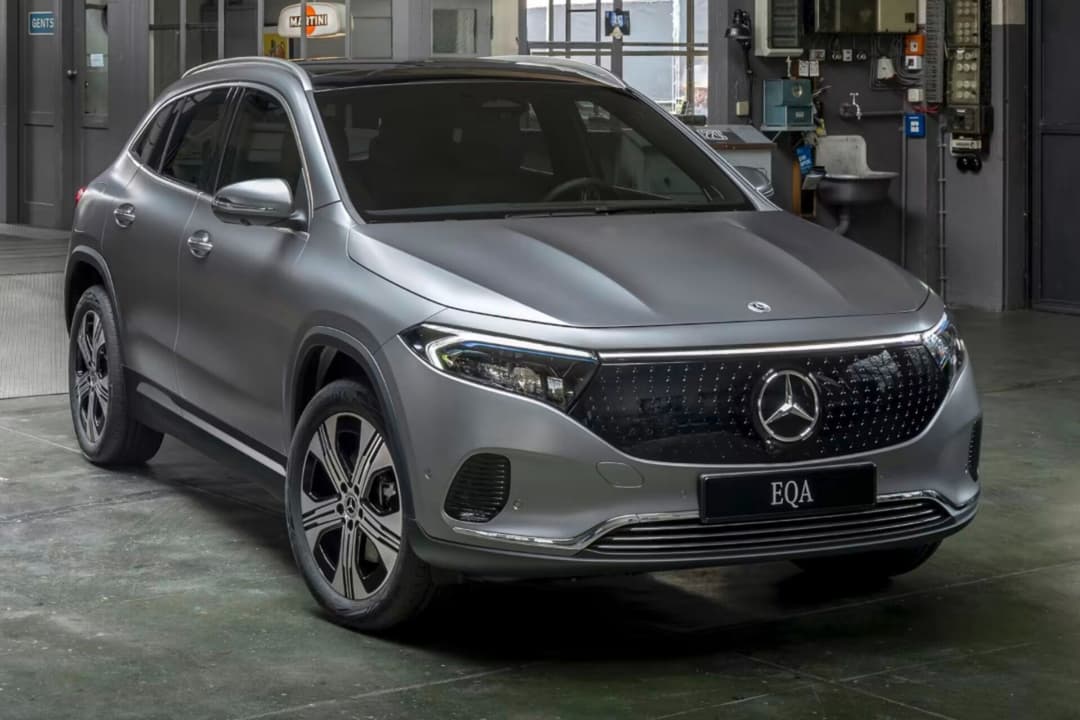
Mercedes-Benz EQA
- Compact electric SUV
- Competes with: Volvo XC40 Recharge, BMW iX3, Tesla Model Y RWD
- Expected on the 1st half of 2024
In 2024 the Mercedes-Benz EQA will be receiving a facelift. Priced from $78,513 to $96,900 before on-road costs, the Mercedes-Benz EQA provides between 426km to 430km of claimed WLTP driving range with two models. The Mercedes-Benz EQA has two models for different needs: the budget oriented 250 model and the performance/outdoor enthusiast's 350 4MATIC model.
Mercedes-Benz EQB
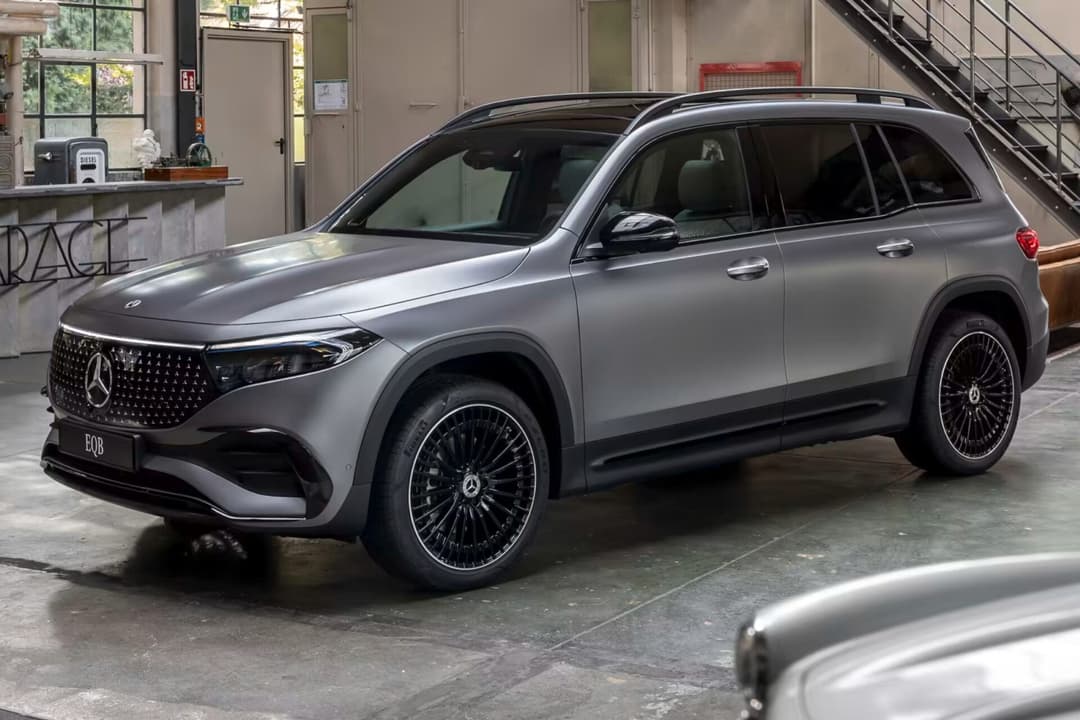
- Compact electric SUV
- Competes with: Tesla Model Y, BMW iX, Hyundai Ioniq 5
- Expected on the 1st half of 2024
Together with the EQA, the Mercedes-Benz EQB will also be receiving a facelift in 2024. With a starting price of A$87,800 the EQB provides between 365-402 km of claimed driving range and a 66.5kWh battery capacity for the base model. The base model's drivetrain will output 168kW/390Nm with the performance-centric 350+ model's outputting 215kW/520Nm.
Mercedes-Benz EQV
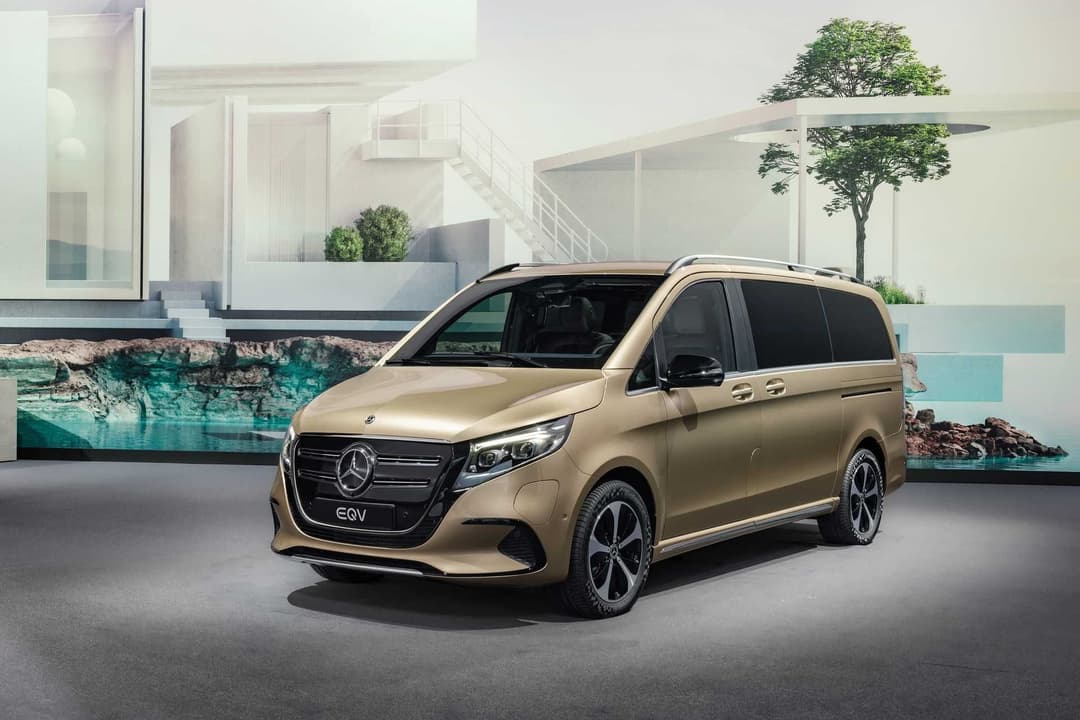
- Premium electric multi-purpose vehicle
- Competes with: Volkswagen ID.Buzz, Peugeot e-Traveller
- Expected in mid-2024
Not much has been released about the specs of the 2024 Mercedes-Benz EQV but it is estimated that it will have a range of around 420km, from a 90kWh battery pack for the EQV300 model.
The new and improved EQV will now feature two 12.3-inch display screens. It will also be equipped with a more comprehensive driving assistance system compared to previous models.
Mercedes-Benz eVito
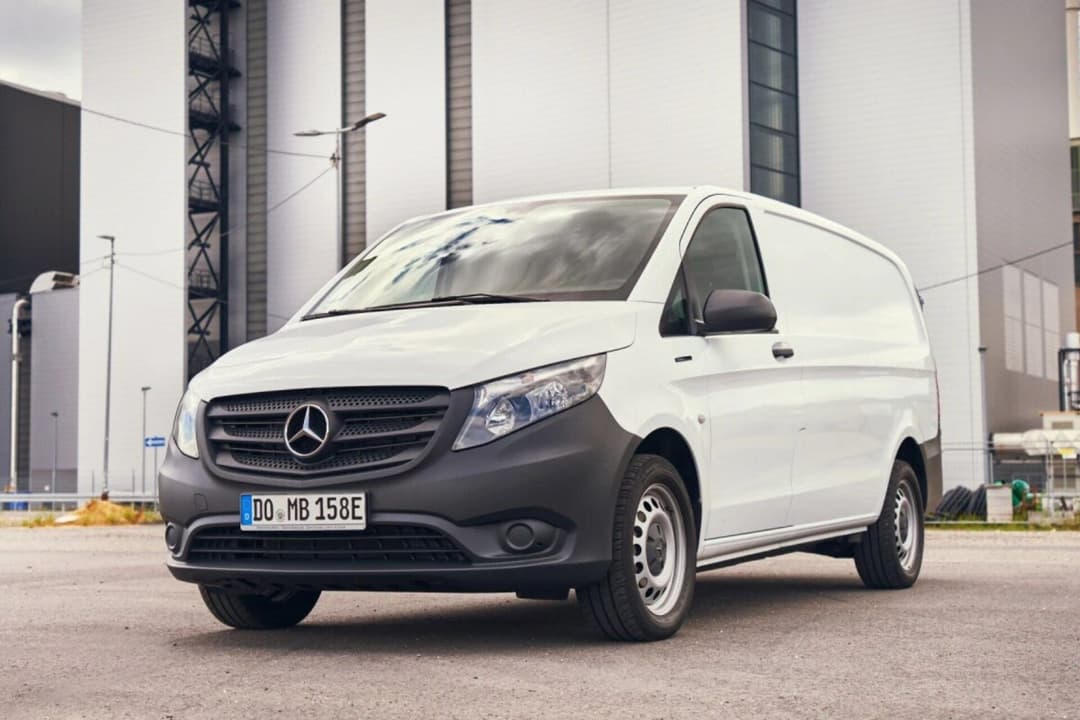
- Medium electric commercial van
- Competes with: LDV eDeliver 9
- Expected in mid-2024
The Mercedes-Benz eVito is an electric commercial van targeted for urban-based fleets.
Priced from $89,353 before on-road costs, the eVito cargo van has a 60kWh usable battery pack delivering up to 262km claimed range on the lenient and unrealistic NEDC testing cycle.
However, it's capable of 80kW DC fast-charging and 11kW AC slow charging rates.
Mercedes-Benz eVito Tourer
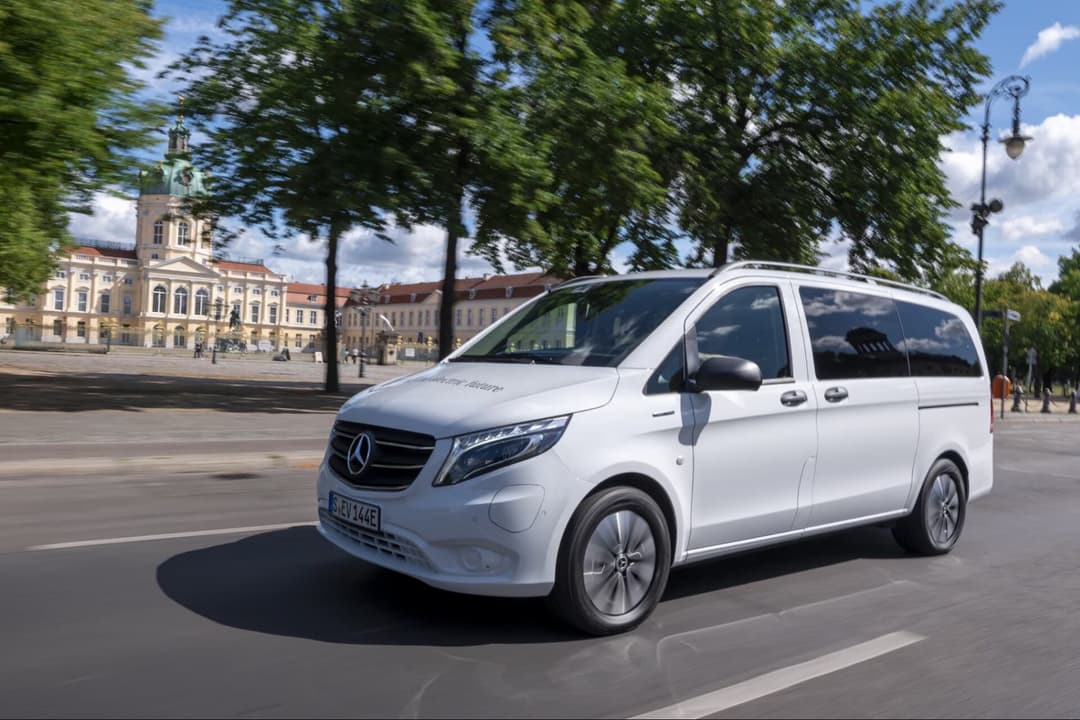
- Electric multi-purpose people mover
- Competes with: LDV Mifa 9
- Expected in mid-2024
As the passenger car version of the eVito commercial EV, the eVito Tourer features an eight-seat interior and is designed for chauffeur services and families in mind.
It costs from $116,117 before on-roads and sits below the larger EQV in the Mercedes line-up, with a 90kWh usable battery pack for up to 421km of unrealistic NEDC driving range.
The eVito Tourer EV can charge at up to 110kW DC and 11kW AC rates.
Mercedes EQS SUV
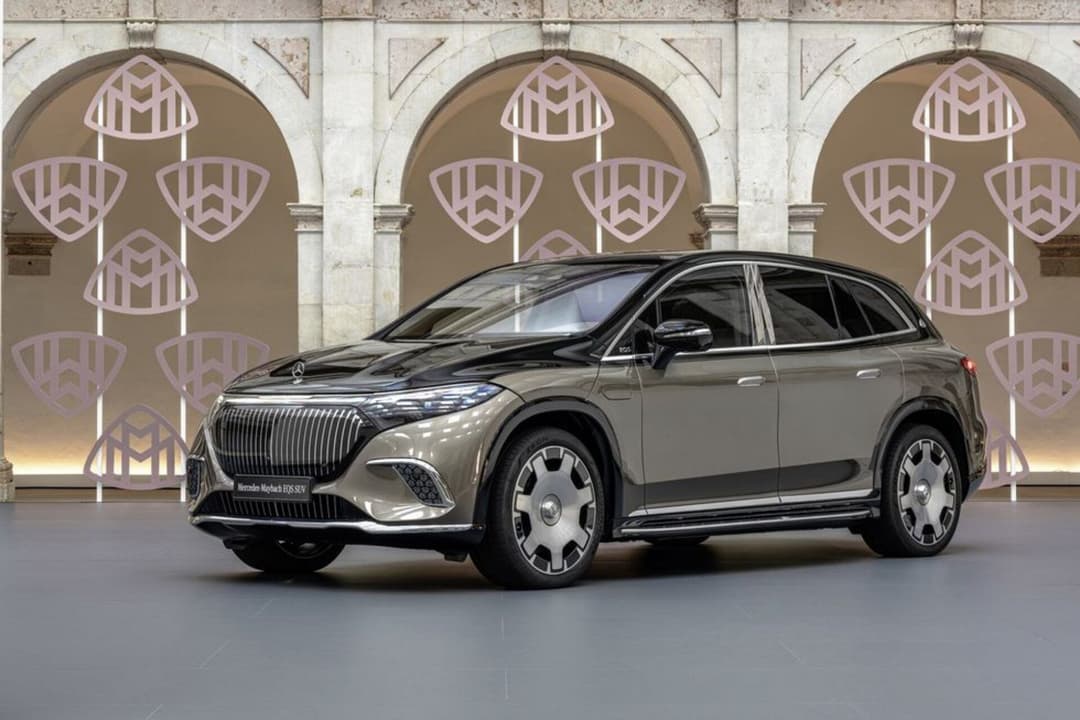
- Large electric SUV
- Expected on the 2nd half of 2024
The EQS SUV is the luxury flagship of the Mercedes-Benz EV range.
Australian pricing and specifications haven't been announced yet, but it's available in four variants overseas with all packing a 108.4kWh usable battery for between 615km to 672km of claimed WLTP range depending on the variant.
Charging speeds mirror the EQS sedan – up to 200kW DC and 11kW AC.
MG
MG Cyberster
- Convertible sports car
- Expected on the 2nd half of 2024
The MG Cyberster, an upcoming electric roadster from the iconic British marque, is set to stand out with its futuristic design and cutting-edge technology. With the resurrection of the MG brand, the Cyberster pays homage to the classic MG roadsters while propelling itself squarely into the realm of modern electric vehicles.
The Cyberster boasts a sleek, aerodynamic silhouette with “Magic Eye” headlights that open when switched on, and an interactive “Digital Fiber” design that integrates LED technology throughout the bodywork.
While specifics are yet to be confirmed, MG has hinted at a potential range of over 800 km (497 miles), making it highly competitive in today's EV market. MG promises a 0-100 km/h sprint time under 3.0 seconds, suggesting that the Cyberster will be as thrilling to drive as it is striking to look at.
Mini
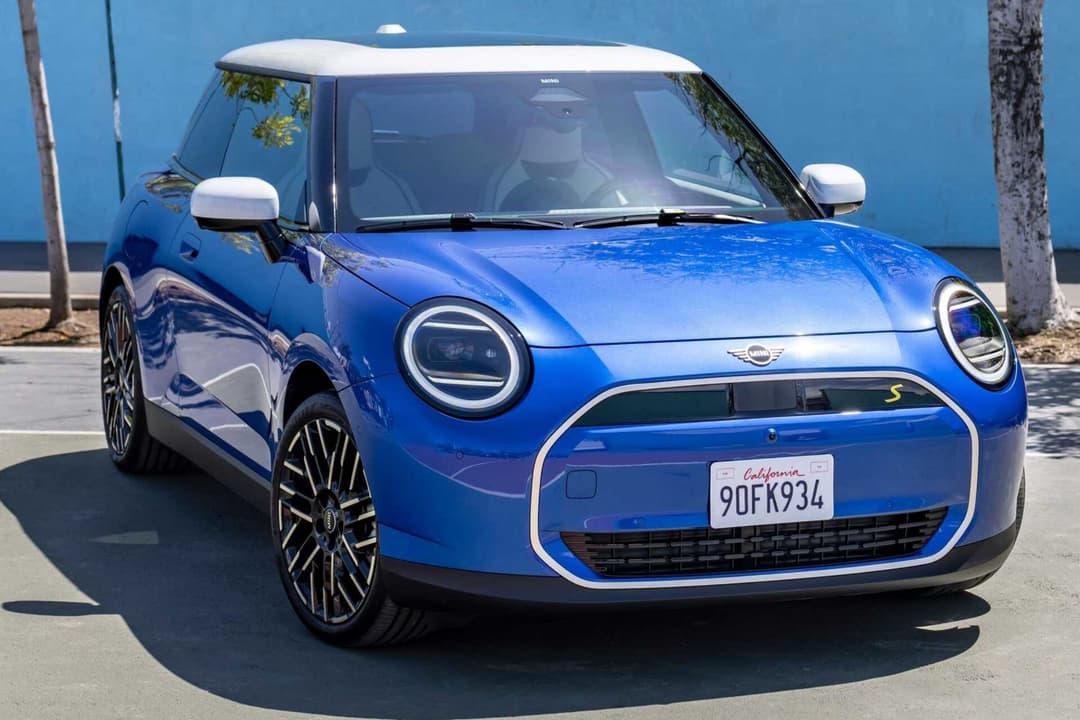
Mini Cooper EV
- Electric hatchback
- Competes with: Hyundai Ioniq 6, Tesla Model 3
- Expected in Q3 of 2024
In 2024 Mini will be introducing the iconic Mini Cooper in all-electric to the Australian market as it is set to replace the Mini Electric. Pricing details for the Australian market have yet to be released but overseas it has a starting price of £30,000 (A$57,000).
The Mini Cooper EV will be available in two variants - the E and SE. The base model will be equipped with a 40.7kWh battery which will provide 300km of range. It uses a 135kW motor which allow the Cooper E to accelerate from 0-100 km/h in 7.3 seconds.
On the other hand, the SE variant is equipped with a 54.2kWh battery which results to an even greater 400km range. To complement the larger battery, the SE has a more powerful 160kW motor which will allow it to get from 0-100 km/h in 6.7 seconds.
Mini Countryman EV
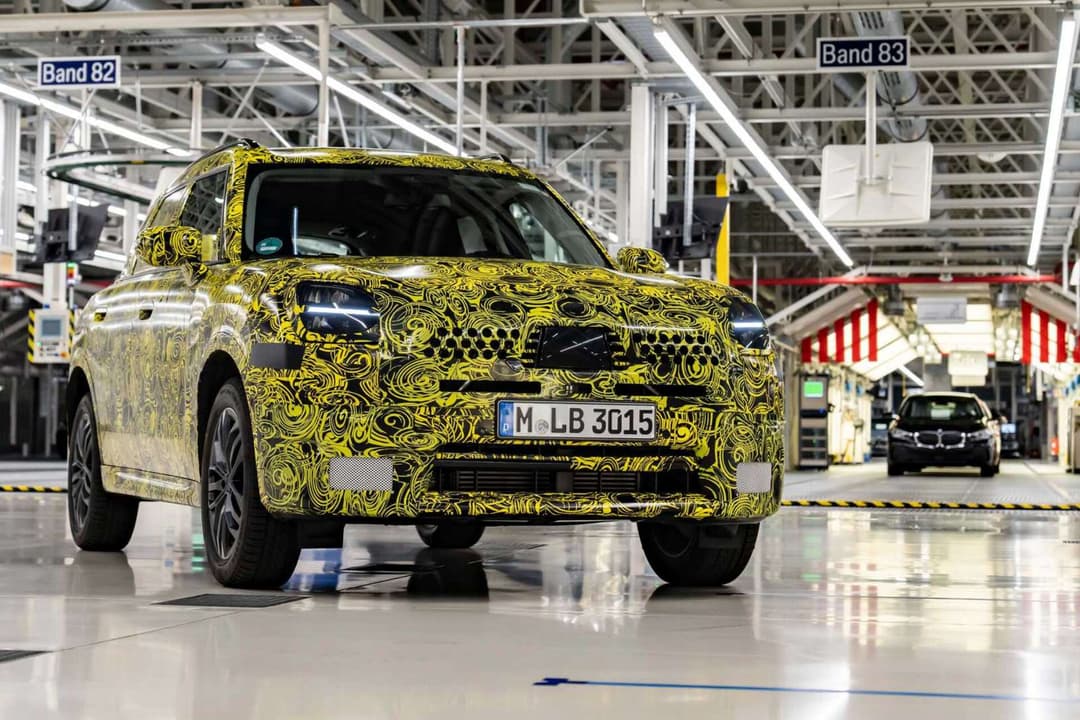
- Small electric SUV
- Competes with: Volvo XC40
- Expected in Q3 of 2024
In case the Mini Cooper EV is too small for your liking, Mini will also be introducing the Countryman EV in 2024. Similar to the Mini Cooper EV, the Countryman EV will be available in two variants - the base model E and the more powerful SE variant. Pricing details for the Countryman EV have yet to be announced but the base model E is expected to start around $64,000 while the sportier SE model will be around $80,000.
The base model will be equipped with a 64.7kWh battery and has a claimed driving range of 462km. Its 150kW single-motor will allow it to accelerate from 0-100 km/h in 8.6 seconds. The performance-oriented SE model will be equipped with a 230kW twin-motor which will allow it to accelerate from 0-100 km/h in 5.6 seconds while only slightly reducing the driving range to 433km.
Nissan
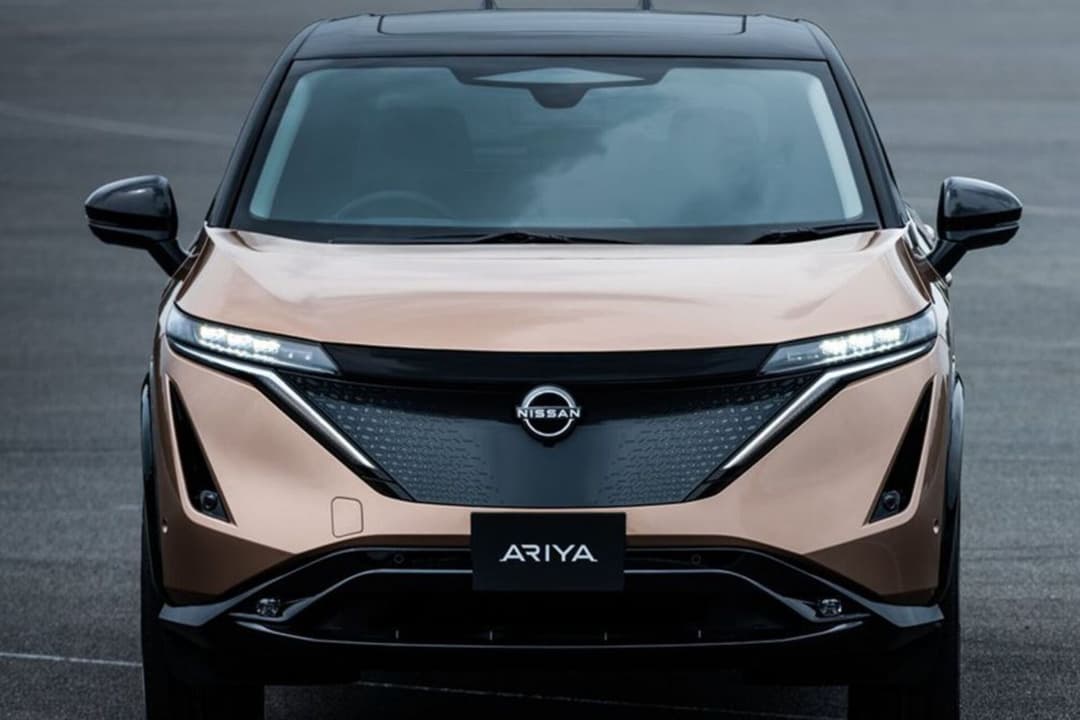
Nissan Ariya
- Electric mid-size SUV
- Competes with: Volkswagen ID.4, Hyundai Ioniq 5, Kia EV6
- Expected in early 2024
Set to replace the Leaf, Nissan will be releasing the Ariya in 2024 which offers improved range and performance for a slight increase in price. It will compete in the popular medium SUV segment which features popular models as the Tesla Model Y, Hyundai Ioniq 5 and Kia EV6. Overseas the Ariya has always been priced very similarly to the Tesla Model Y, it is expected to be the same case once it enters the Australian market. This means that it will probably be priced starting around $65,000-$70,000 locally before on-road costs.
Available in two configurations, front-wheel and all-wheel drive, the Ariya is estimated to have a driving range of up to 490km when opting for the larger battery pack. The front-wheel drive configuration can go form 0-100 km/h in 7.5 seconds while the more powerful all-wheel drive configuration can achieve the same feat in 5.0 seconds.
Peugeot
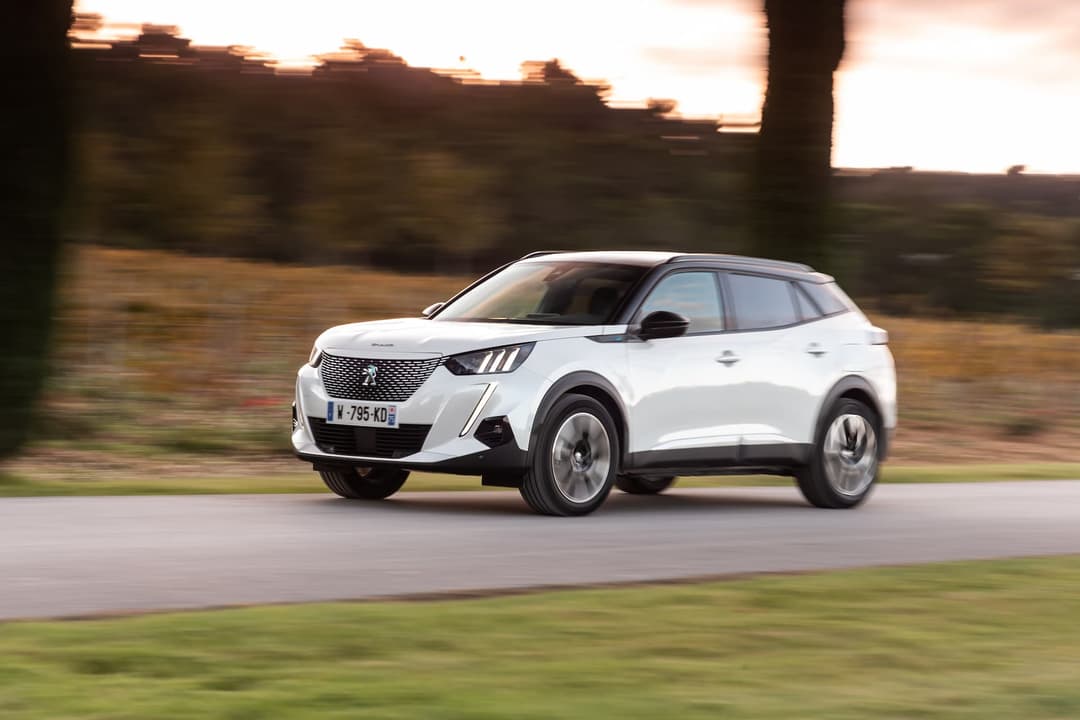
Peugeot e-2008
- Small electric SUV
- Competes with: Renault Megane E-Tech, Kia Niro EV, Hyundai Kona Electric, Cupra Born
- Expected in 2024
Peugeot Australia has confirmed it'll bring the pre-facelifted e-2008 electric SUV, as it's second pure EV following the e-Partner commercial van.
Based on the regular petrol-powered mid-spec 2008 GT small SUV, the e-2008 EV is priced from $59,000 before on-roads with a 46.3kWh usable battery pack offering up to 328km of claimed WLTP range.
Recharging rates go up to 100kW DC and 11kW AC.
Peugeot e-208
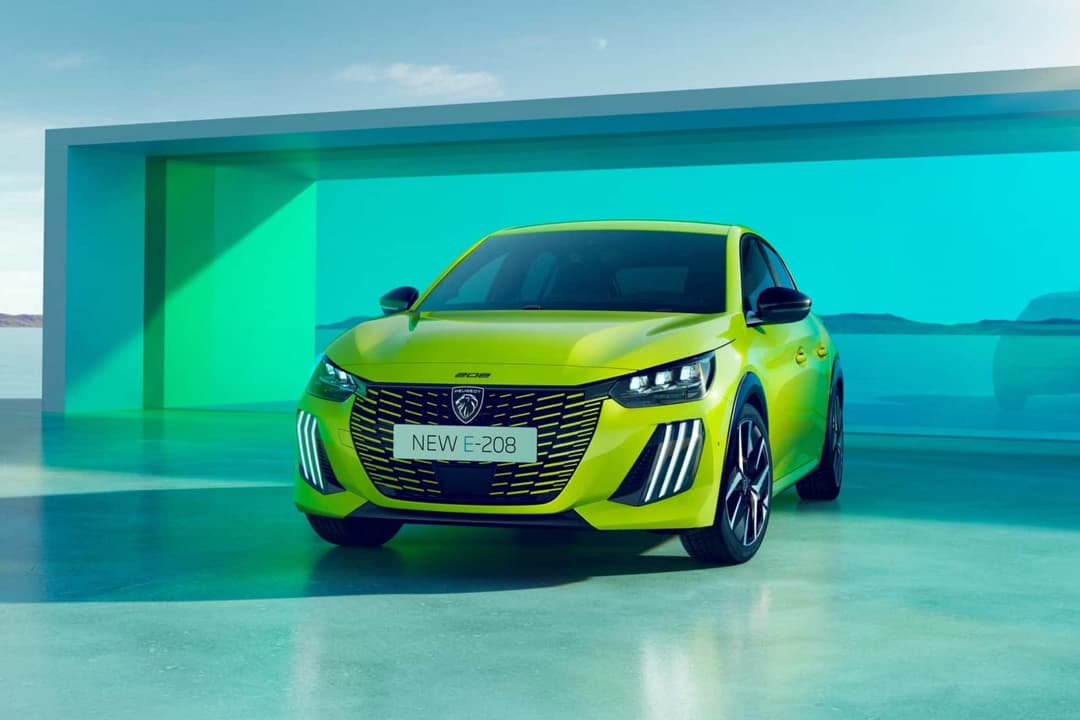
- Electric hatchback
- Competes with: Fiat 500e, Mini Cooper EV
- Expected in early 2024
Peugeot will be releasing the e-208 in 2024 and is set to compete with other electric hatchbacks such as the Fiat 500e and Mini Cooper EV. It will have a starting price of $55,000 before on-road costs, which falls between the Fiat 500e and Mini Cooper EV's price range. The e-208 offers a driving range of up to 400km from its 51kWh battery pack.
The e-208 will be equipped with a 115kW motor in a front-wheel drive configuration which will allow it to accelerate from 0-100 km/h in around 8.1 seconds. It can support up to 100kW of charging which equates to a 20% to 80% charging in just 25 minutes.
Peugeot e-Expert
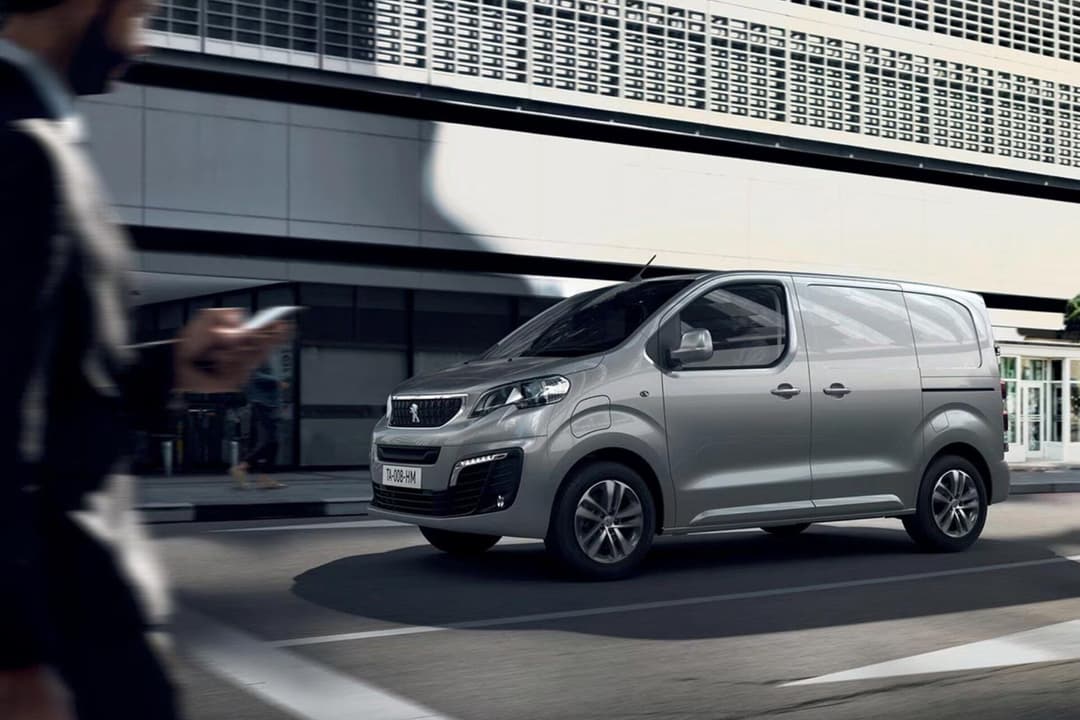
- Mid-size electric van
- Competes with: Mercedes-Benz eVito, Ford e-Transit, LDV eDeliver 7
- Expected in 2024
Rounding out Peugeot's 2024 Australian EV rollout is the e-Expert, a mid-size electric van which follows the Peugeot e-Partner in the electric van segment. No pricing details for the e-Expert have been released yet, but it is expected to cost a bit more than the turbo-diesel Expert which is at $53,000. Most probably, it will be priced at around $70,000+ for the Australian market.
The e-expert is expected to be offered in two battery pack sizes - 50kWh and 75kWh battery packs. The 50 kWh battery pack will provide a driving range of 240 km while the 75 kWh provides 340 km of range.
Polestar
Polestar 3
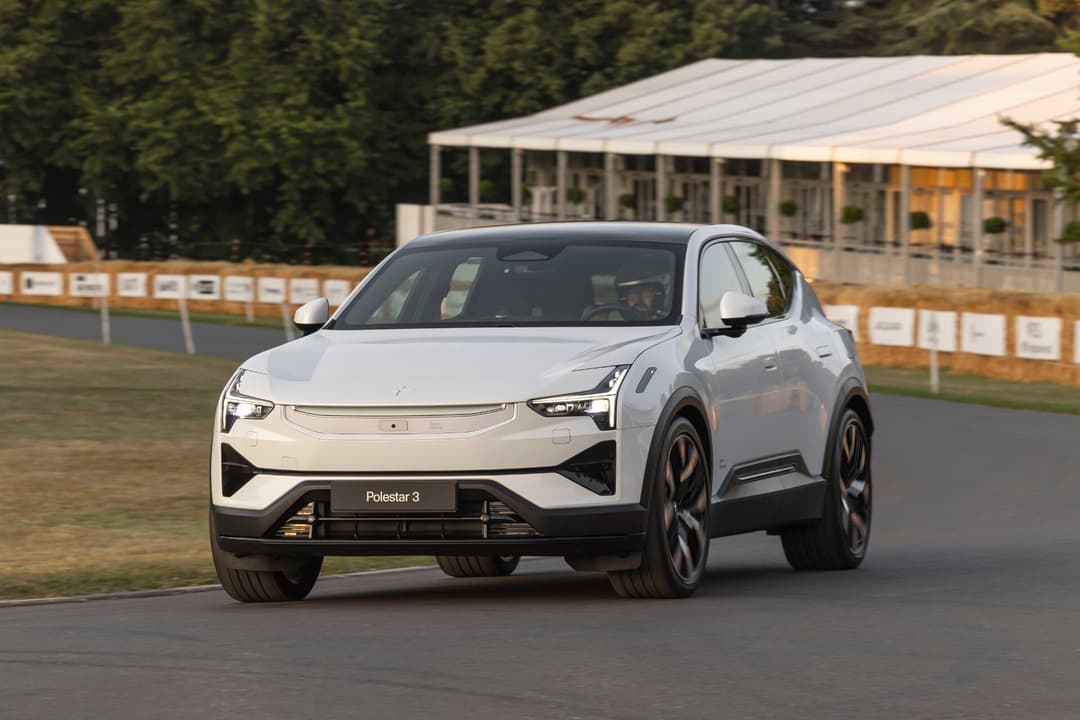
- Luxury crossover SUV
- Competes with: Tesla Model Y, Mercedes-Benz EQS
- Expected in mid-2024
The Polestar 3 EV is priced from $132,900 before on-road costs and provides up to 610km of claimed WLTP driving range, featuring Pilot and Plus Packs as standard, a large 14.5-inch Android Automotive touchscreen, and up to 910Nm of torque with the Performance Pack fitted.
The five-seater large SUV can recharge up to 11kW AC and 250kW DC charging speeds via its Type 2/CCS2 port, and has the capability for vehicle-to-grid bidirectional charging.
The Sino-Swedish company promises it can keep at least 70 per cent of its battery health over that period, otherwise battery replacement can be offered for free.
Polestar 4
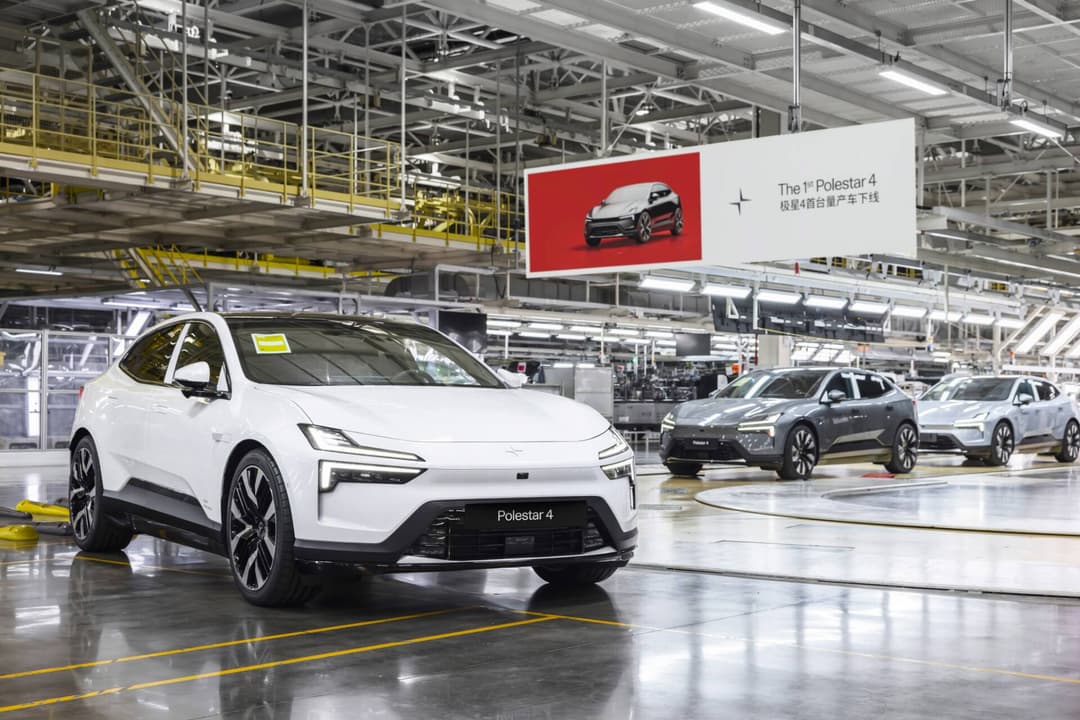
- Compact luxury crossover SUV
- Competes with: Kia EV6, Tesla Model Y
- Expected in Q3 of 2024
The Polestar 4 falls between the Polestar 2 and 3 in price and size but it surpasses both in performance. With a starting price of about $90,000 it competes with EV's such as the Tesla Model Y and Kia EV6.
The Polestar 4 will be equipped with a 102kWh battery pack and will be available in two configurations - single and dual electric motor options. The dual motor version will be Polestar's most powerful and fastest vehicle to date. With a max output of 394 kW and a 0-100 km/h acceleration of 3.8 seconds. On the other hand, the Long Range version in single motor is expected to reach a driving range of 480 km. The Polestar 4 will also offer fast DC charging capabilities of up to 200 kW while AC charging is at 22 kW.
Porsche
Porsche Macan EV
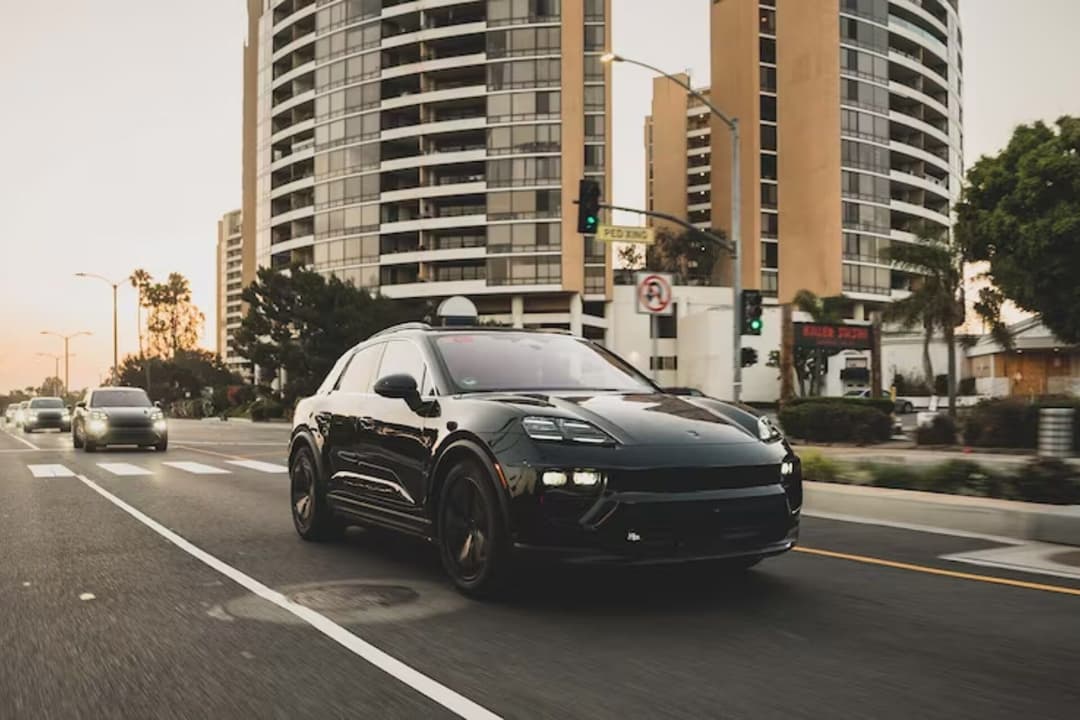
- Compact luxury crossover SUV
- Competes with: Tesla Model Y, Audi e-Tron, Polestar 4
- Expected in 2024
Prototypes of the Porsche Macan EV have recently been spotted undergoing testing in California. It is set to be unveiled in late 2023 and is expected to be available in Australian shores by 2024. Pricing details for the Macan EV have yet to be revealed but the non-EV models of the Macan are currently priced at A$93,800.
Porsche has hinted that the Macan EV will improve upon the driving range of the Taycan , which means a driving range of 400-500 km for the Macan EV. The Macan will be Porsche's first ever model to be built on an EV-dedicated platform with an all-wheel drive powertrain. It has been confirmed that the Macan will be equipped with lithium-ion battery pack with around 100 kWh of capacity, and an electric motor with a max output of 450 kW and 1000 Nm of torque. The Macan is also expected to have fast DC charging capabilities of up to 270 kW which allows it to charge from 5-80% in 25 minutes.
Renault
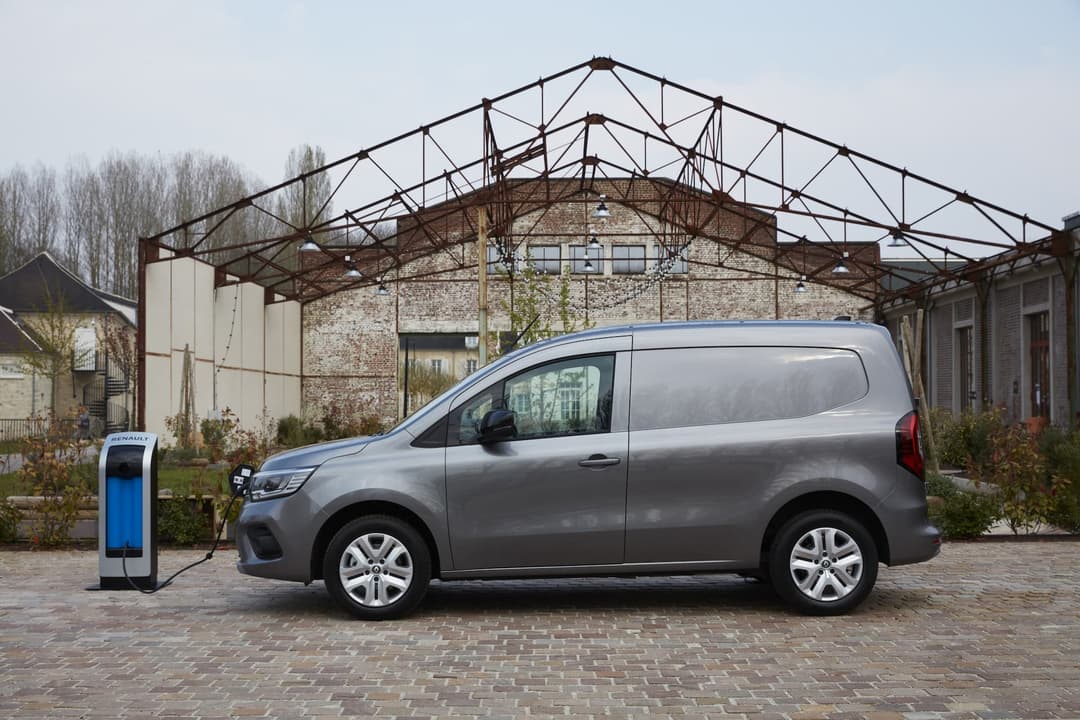
Renault Kangoo E-Tech
- Small electric commercial van
- Competes with: Peugeot e-Partner
- Expected in Q1 of 2024
The ageing Renault Kangoo is set for an overhaul this 2024, with the all-new Kangoo E-Tech electric commercial van riding on a bigger and all-new passenger car platform.
Australian pricing hasn't been confirmed, though it does feature a 45kWh usable battery pack providing up to 285km claimed driving range on the WLTP cycle.
Overseas, it can charge at up to 80kW DC and 11kW AC rates.
Renault Megane E-Tech
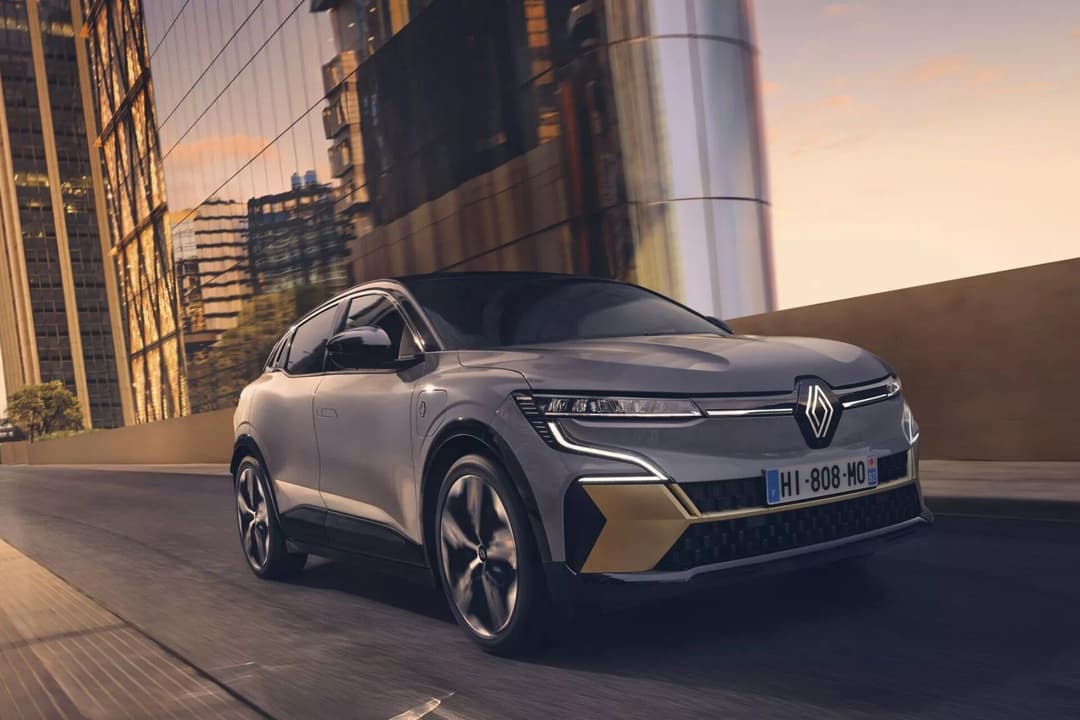
- Small SUV
- Competes with: Kia Niro EV, Peugeot e-2008, Cupra Born
- Expected in Q1 of 2024
The Renault Megane E-Tech will be the French brand's first ground-up EV featuring a new design language and Android Automotive software system.
It's expected to start around the $70,000 range when it lands in Australia, with a 60kWh usable battery providing up to 470km of claimed WLTP driving range.
The small electric SUV is capable of up to 130kW DC and 22kW AC charging rates overseas.
Skoda
Skoda Enyaq
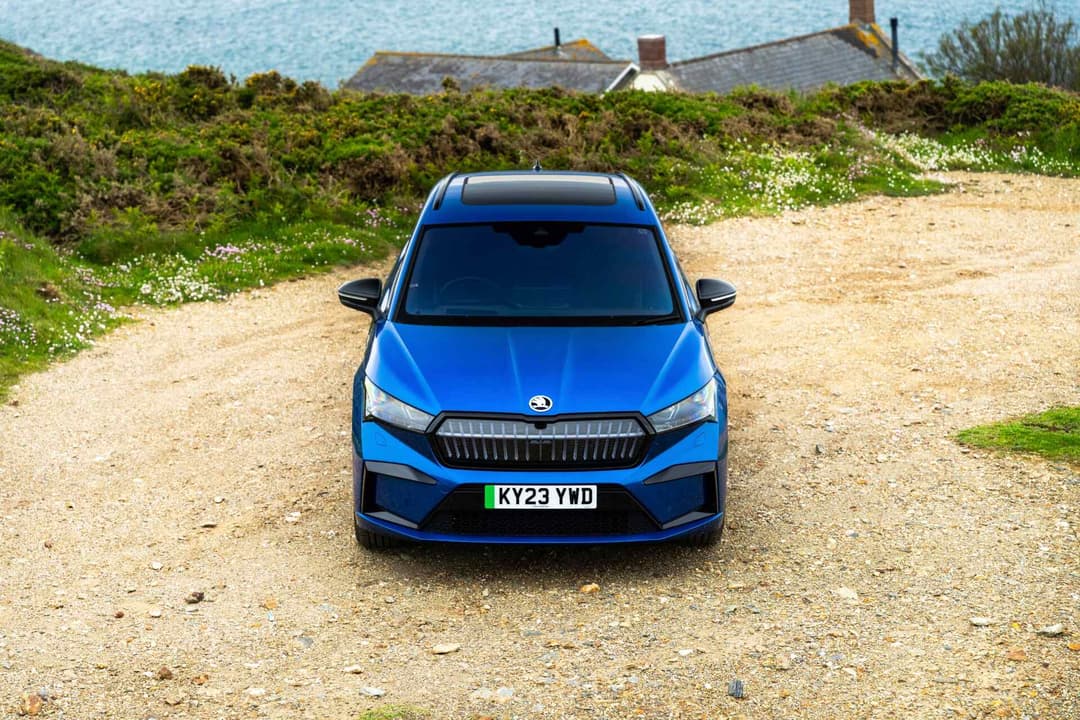
- Mid-size electric SUV
- Competes with: Cupra Born, BYD Atto 3, Volkwagen ID.4
- Expected in July 2024
The Skoda Enyaq will be available in four different models which offer various choices for range, performance and price. The Enyaq's base model, the 60, has a starting price overseas of £38,970 (~A$75,000) and offers up to 400 km in driving range. On the other hand the 85 model of the Enyaq, offers the best driving range at 565km with a cost of £44,540 (A$85,000). For more performance-centric buyers, the vRS model has a max power output of 250kW.
The base model has a DC charging capacity of 120 kW while the more expensive and performance-centric models have a DC charging capacity of 175 kW DC.
SsangYong
SsangYong Torres EVX
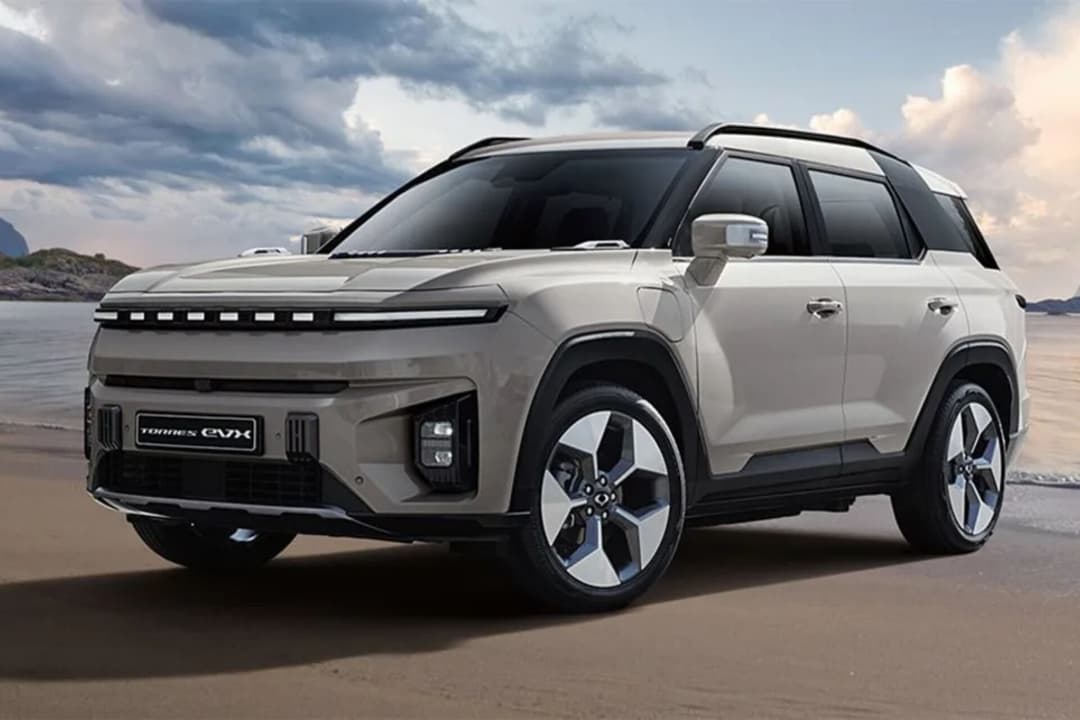
- Electric SUV
- Competes with: Hyundai Kona, Kia Niro, MG ZS EV
- Expected on the 2nd half of 2024
Recently renamed to KG Mobility, this South Korean car manufacturer unveiled its new Torres EVX. It is still unclear whether the all-electric version will be introduced to the Australian market in 2024, but based on its pricing in South Korea it is estimated to cost around A$55,000-60,0000 for Australians. The Torres EVX's starting price falls between the prices of its closest competitors, being priced higher than the Hyundai Kona but less than the Kia Niro base models.
The Torres EVX will be equipped with a 73.4kWh LFP battery pack which will provide the SUV with a driving range of 433km. It has a front-wheel drive configuration powered by a 152kW electric motor. The Torres EVX comes with loads of features such as Apple Play/Android and V2L charging capabilities.
Tesla
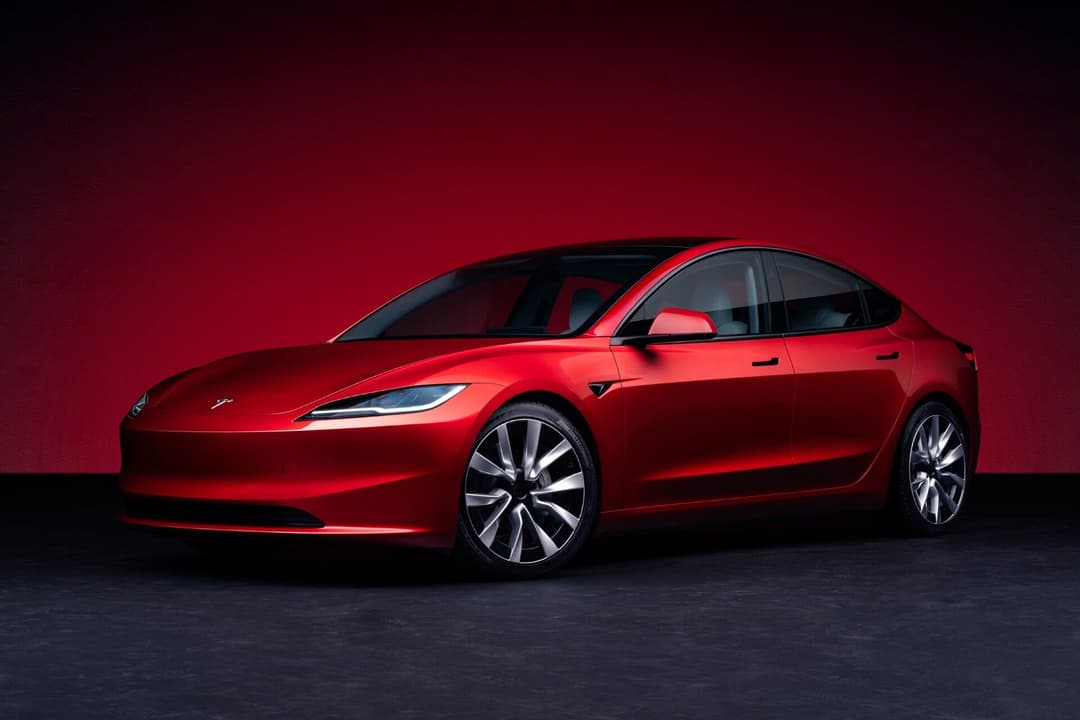
Tesla Model 3
- Electric sedan
- Competes with: Polestar 2, BYD Seal, Hyundai Ioniq 6
- Expected in January 2024
The Tesla Model 3 has become one of the most popular electric vehicles in Australia, thanks to its blend of performance, range, and technology. Priced from $61,900 to $71,900 before on-road costs, the updated 2024 Tesla Model 3 has up to 533 km of claimed driving range, two battery pack sizes, and is available in rear-wheel and all-wheel drive.
The Model 3's LFP battery and can recharge at up to 170kW DC. In contrast, the Long Range variant uses an NMC battery pack and can charge at up to 250kW DC speeds.
All variants offer the same class-leading infotainment and connectivity offering: a 15-inch infotainment display, active safety assistance systems, built-in dashcam recording, and more as standard.
Toyota
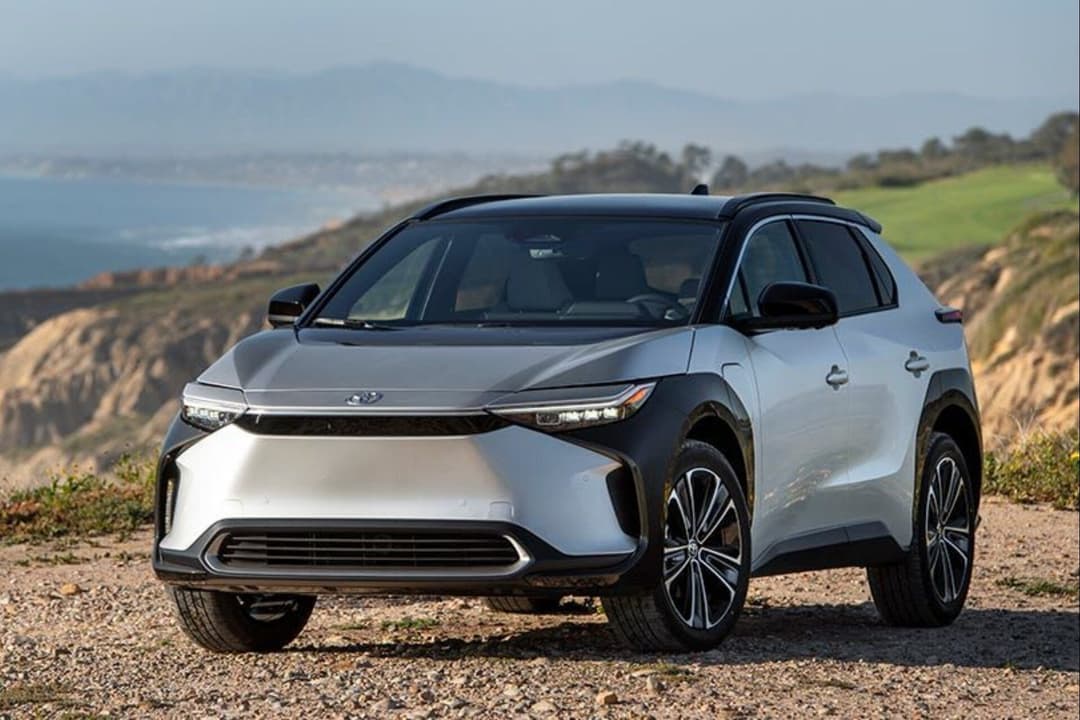
Toyota bZ4x
- Medium electric SUV
- Competes with: Tesla Model Y, Kia EV6, Hyundai Ioniq 5, Volkswagen ID.4, Subaru Solterra
- Expected on the 1st half of 2024
Australia's most popular car brand will launch its first EV at the start of 2024. The Toyota bZ4x is an all-electric equivalent of its popular petrol-powered RAV4 medium SUV, though the local arm expects low volume sales.
Riding on a ground-up EV platform, it adopts a 64kWh usable battery pack for between 470km to 516km of claimed WLTP range depending on the variant.
The Toyota electric car can be recharged at up to 150kW DC and 6.6kW AC speeds.
Volkswagen
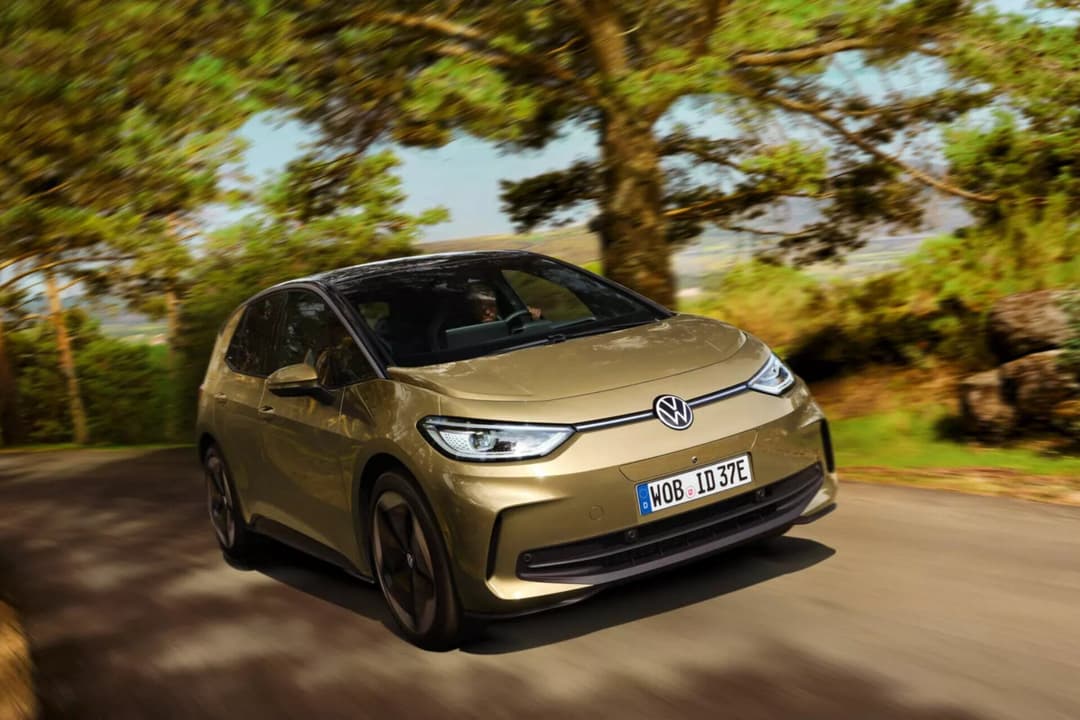
Volkswagen ID.3
- Electric hatchback
- Competes with: Cupra Born, Nissan Leaf, MG 4
- Expected in late 2024
The ID.3 will be Volkswagen's first foray into the Australian EV market and it is set to compete with other electric hatchbacks like the Nissan Leaf and MG4. Prices are yet to be announced but the ID.3 is estimated to cost around $60,000+ before on-road costs. This would mean that it would be priced much higher compared to its closest competitors.
It will be equipped with a 77kWh battery pack which provides the ID.3 with a claimed WLTP driving range of 475km. The ID.3 is equipped with a 150kW single electric motor in rear-wheel drive configuration and provides 310Nm of torque.
Volkswagen ID.4
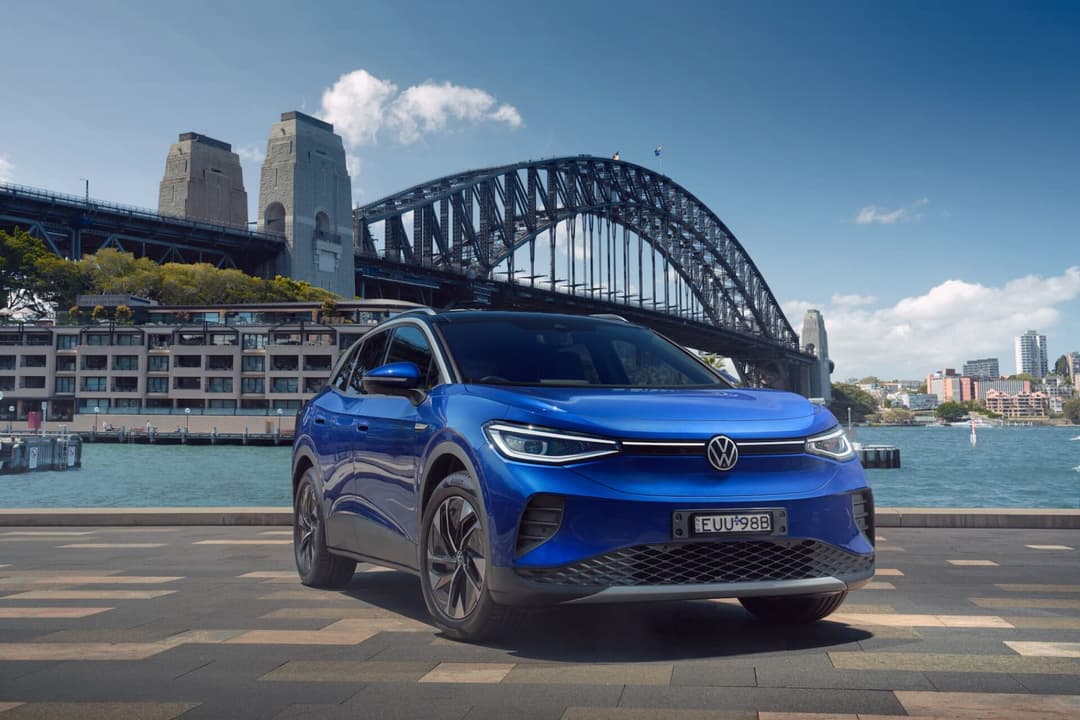
- Medium electric SUV
- Competes with: Tesla Model Y, Kia EV6, Hyundai Ioniq 5, Toyota bZ4X
- Expected in July 2024
The German automotive giant is set to finally debut its first electric cars in Australia – almost four years after its release overseas.
The Volkswagen ID.4 is a family electric SUV targeted at the popular Tesla Model Y, with an entry price of around $60,000 expected.
It will be sold in two different useable battery sizes – 52kWh and 77kWh, offering up to 345km and 522km of claimed WLTP driving range repsectively.
Charging speeds differ from 110kW DC and 7.2kW AC on the smaller battery or 125kW DC and 11kW AC on the larger unit.
Volkswagen ID.5
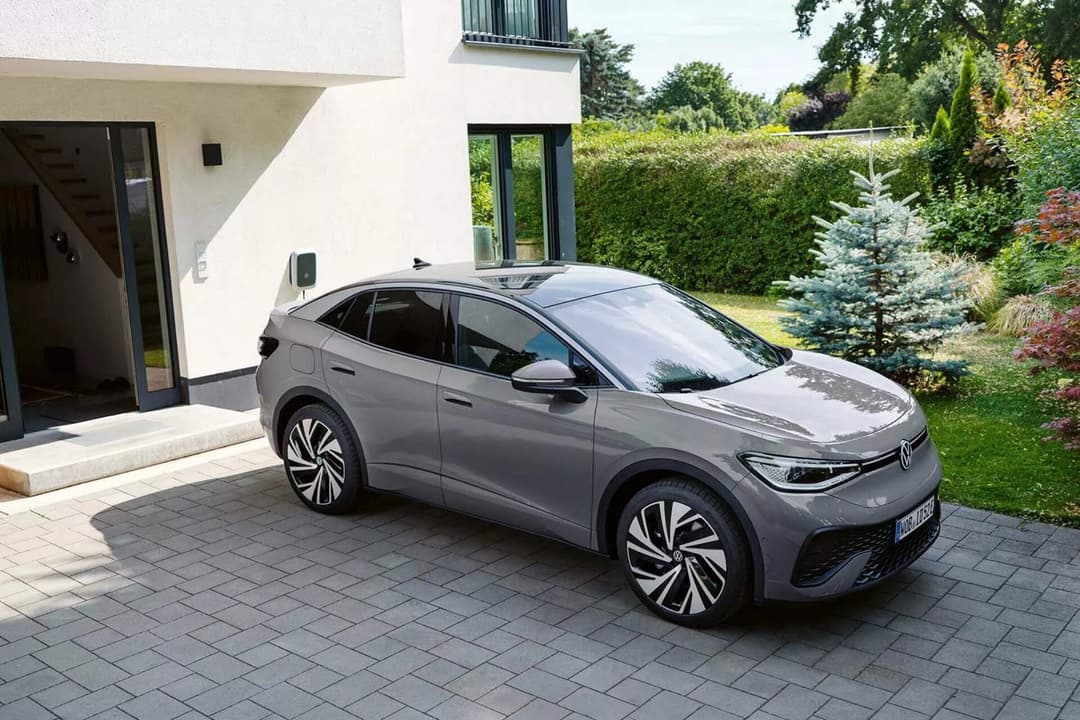
- Medium electric coupe SUV
- Competes with: Kia EV6, Renault Megane E-Tech, Volvo C40 Recharge
- Expected in July 2024
Also set to debut in Australia alongside the Volkswagen ID.4 is the ID.5, a low-slung 'coupe SUV' version.
While local pricing and specifications haven't been announced yet, it's possible that the line-up will mirror the ID.4 SUV, albeit with a slightly higher price tag.
Volkswagen ID.Buzz
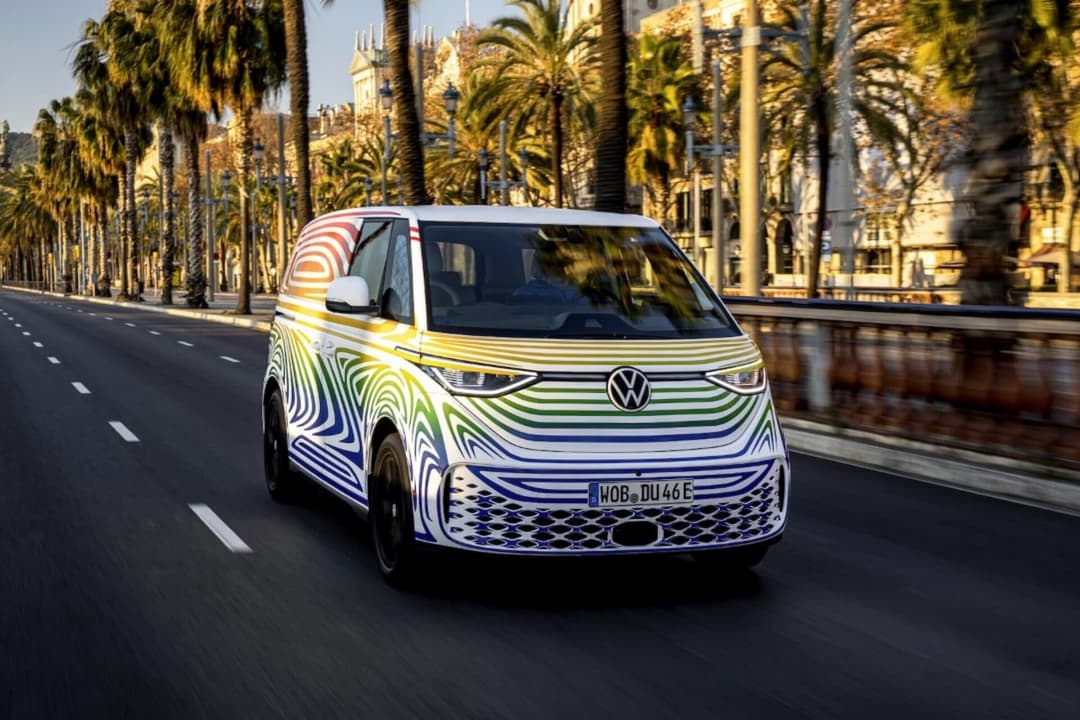
- Electric minivan
- Competes with: Mercedes-Benz eVito, Ford e-Transit, LDV eDeliver 7
- Expected in late 2024
The Volkswagen ID.Buzz people carrier and ID.Buzz Cargo commercial van harps back to its roots with short overhangs, long wheelbase, and open glasshouse – thanks to riding on the firm’s dedicated Modular Electric Toolkit (MEB) platform.
While retro-inspired ID.Buzz vans can charge its 77kWh (usable) battery at up to 135kW DC speeds, it’ll be the first Volkswagen’s to support vehicle-to-home (V2H) and vehicle-to-grid (V2G) bidirectional charging.
Volvo
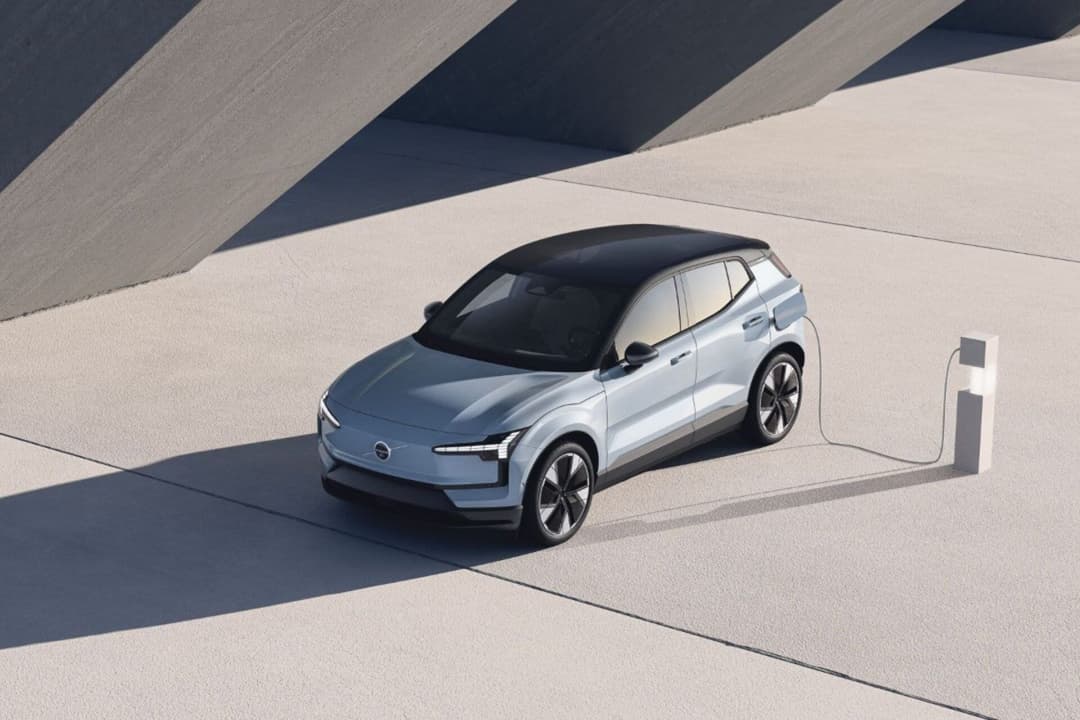
Volvo EX30
- Small electric SUV
- Competes with: Tesla Model Y, Mercedes-Benz EQA, Kia Niro EV
- Expected in early 2024
The premium small electric SUV is a compelling package offering value, an eco-conscience, and high performance. Priced from $59,990 to $69,990 before on-road costs, the EX30 EV provides between 460km to 480km of claimed WLTP driving range depending on the variant.
The Performance model can go from 0-100km/h time in just 3.6 seconds – in line with the Tesla Model Y Performance, Kia EV6 GT, and Ford Mustang Mach-E GT.
The Volvo EX30 rivals the similarly-priced Tesla Model 3, Cupra Born, and Polestar 2 electric cars. But, electric SUV competitors include the upcoming all-new Hyundai Kona Electric, Kia Niro EV, and larger Tesla Model Y.
Volvo EX90
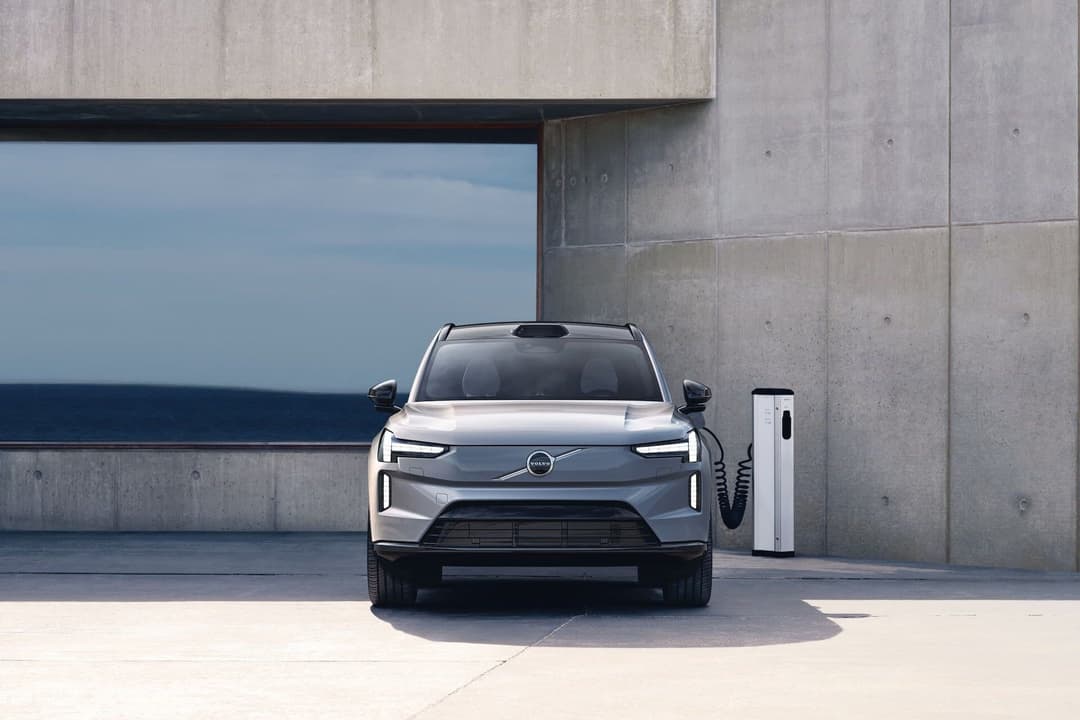
- Large electric SUV
- Competes with: BMW iX, Mercedes EQS SUV, Tesla Model X
- Expected in late 2024
The Volvo EX90 is set to compete with similar large electric SUVs such as the BMX iX and Tesla Model X, once it is introduced in 2024. It will act as the larger, tech-filled and higher-end version of the EX30. It is estimated to cost Australians around $120,000 for the base model and reach the $150,000-figure for more expensive variants with additional features.
It will be equipped with a 111kWh battery pack which will provide the EX90 with up to 480 km of driving range. The EX90 will be built with a twin-motor AWD configuration, giving it 365 kW of power and 900 Nm of torque. On the other hand, the base model will have 295kW of power and 770 Nm of torque.
A defining feature for the EX90 would be its safety technology. Volvo went all-in when it comes to the safety features for the EX90 as they have equipped the EX90 with their best and most advanced sensors and software.
2024 Australian EV FAQs
About the author
Stay up to date with the latest EV news
- Get the latest news and update
- New EV model releases
- Get money savings-deal



